Business & Management
Economists Offer Policy Recommendations to Curb Youth Unemployment in Uganda
Published
2 years agoon
By
Jane Anyango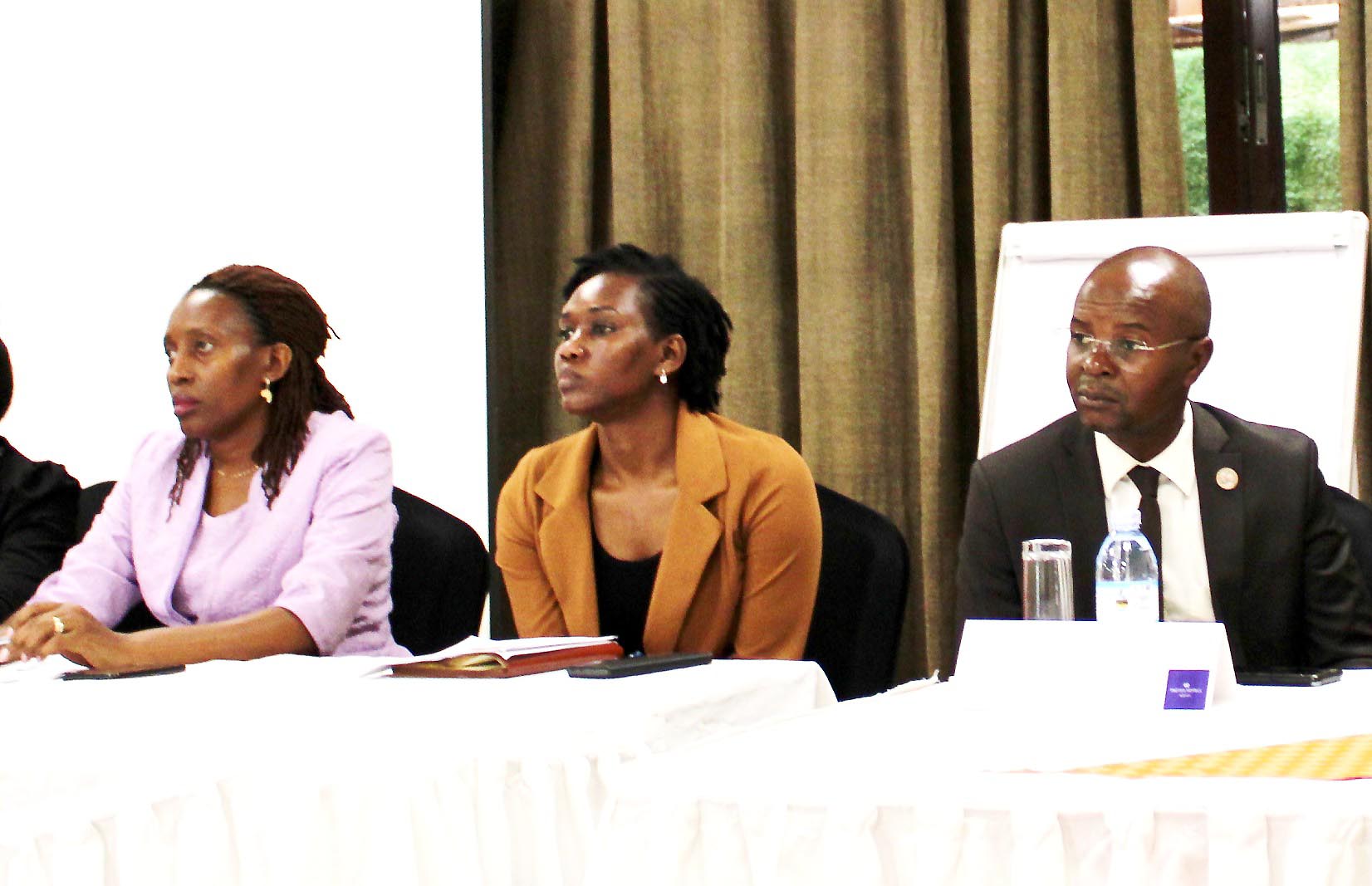
Economists from the Makerere University’s School Economics have provided policy options to help mitigate youth unemployment in Uganda.
A team of researchers led by Prof. Edward Bbaale as Principal Investigator assisted by Dr. Susan Kavuma, Peter Babyenda, Brenda Kiconco, Anitah Kyamugaba , Hennery Sebukeera and Nakigudde Claire under took a research project titled, ‘ “Empirical Review of Youth Employment Policies in Uganda”with technical and financial support from partnership for economic policy Nairobi Kenya funded by Mastercard Foundation.
The study looked at insights from different people on how youth unemployment and under employment can be solved. The research project intended to review the youth employment policies, legislations, interventions and programs with the aim of identifying the best practices for promoting youth employability, productivity, and opportunities among the youth.
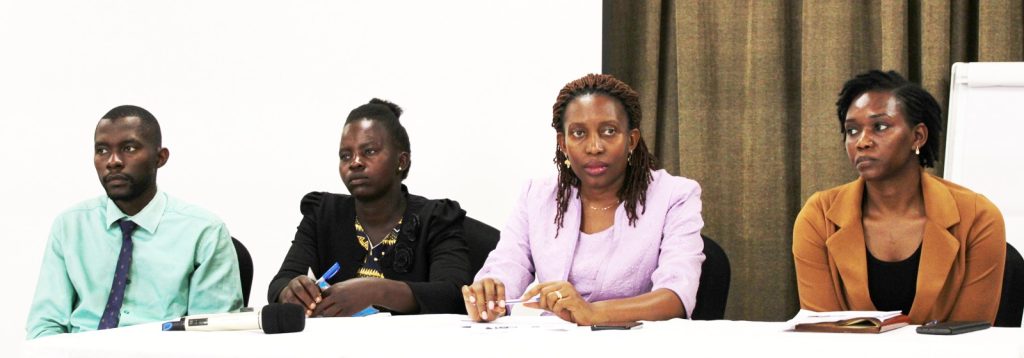
The researchers worked closely with the different Institutional framework concerned with youth affairs including in the Ministry of Gender, Labour and Social Development and the Uganda Bureau of Statistics, Ministry of Education and Sports, National Planning Authority, Federation of Uganda Employers, National Organization of Trade Unions and parliament among others
The study findings were presented during the dissemination workshop held on 9th November 2022 at Protea Hotel in Kampala to members of the academia, representatives from government ministries, departments and agencies, the Private sector, civil society organizations, representatives of the youth from different divisions of Kampala and other districts and key collaborators.
The dissemination workshop was intended to validate the findings of the study through contributions, corrections,and an evaluation of the opportunities, challenges, chances, the gaps, costs of and thorough practical policy options with the aim of enriching the report and the policy recommendations in particular to government.
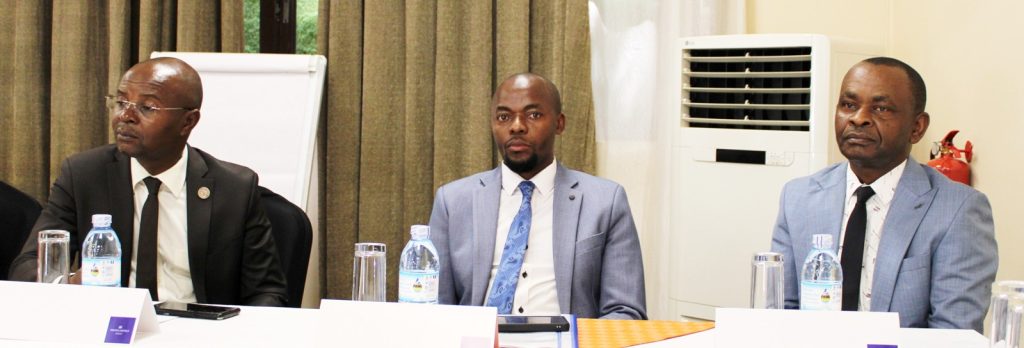
Representing the Principal, College of Business and Management Sciences, the Dean School of Economics and also PI Prof. Edward Bbaale noted that youth unemployment and under employment is one of the policy issues that warrant due attention.
He observed that Uganda is one of the youngest and fastest growing populations in the world with 54% of the population below 18 years of age and yet the population is growing very fast at 3.4 %.
Bbaale added that Uganda is also faced with a serious problem of high school dropout rate. Data from the Ministry of Education indicates that on average one million pupils that enroll in primary one, only 600 thousand sit the primary leaving examination and this number reduces to 300 thousand at the Uganda Certificate of education and reduces further to 100 thousand to those that go for the advanced certificate.
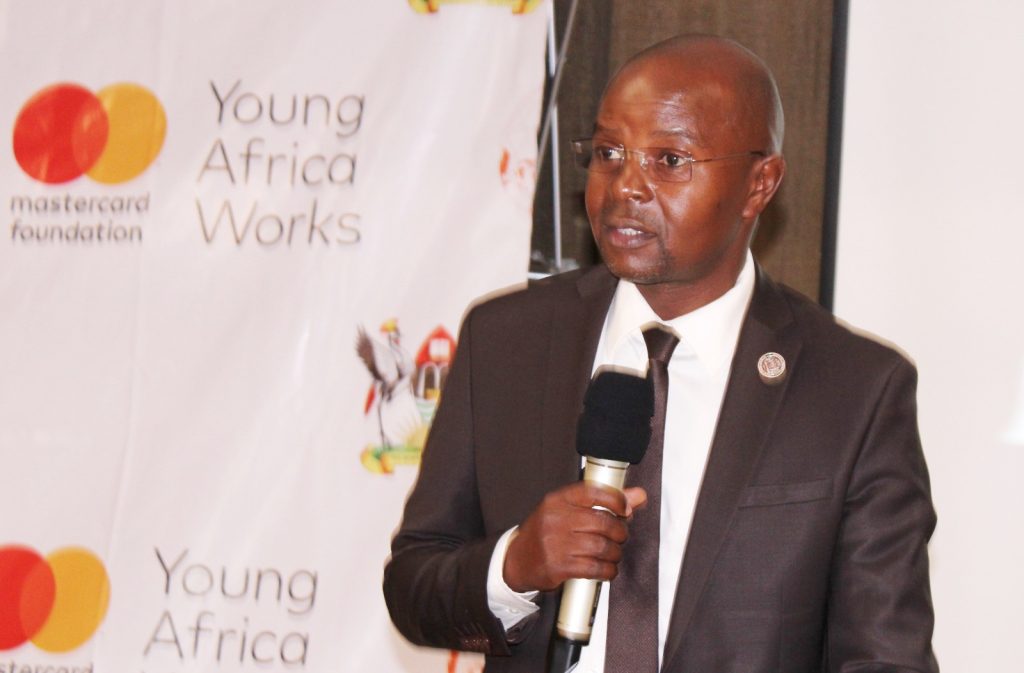
“The question is where these young men do and women go and who is the messiah. Is TVET, the different skilling programmes the messiah for Uganda? and more broadly even those that graduate at higher level, the question is that whether the problem is at the demand level to the extent that the economy is so much contracted and that there is no space for people to come and take employment meaning that the economy is growing without creating jobs”. Bbaale questioned.
Aware that the services sector is driving growth in Uganda and the agricultural sector is well behind services and industry as far as GDP is concerned, Bbaale noted that this means that there has been sectorial shift in GDP composition- at one time it was agriculture ahead of industry and services but now we have services ahead of the two.
“Whereas we have had the sectorial shifts in the GDP composition, there are no sectoral shifts in employment and majority of our people still depend on agriculture and there is a smaller cake despite its holding 60% of our people coming with questions of low productivity and poverty.
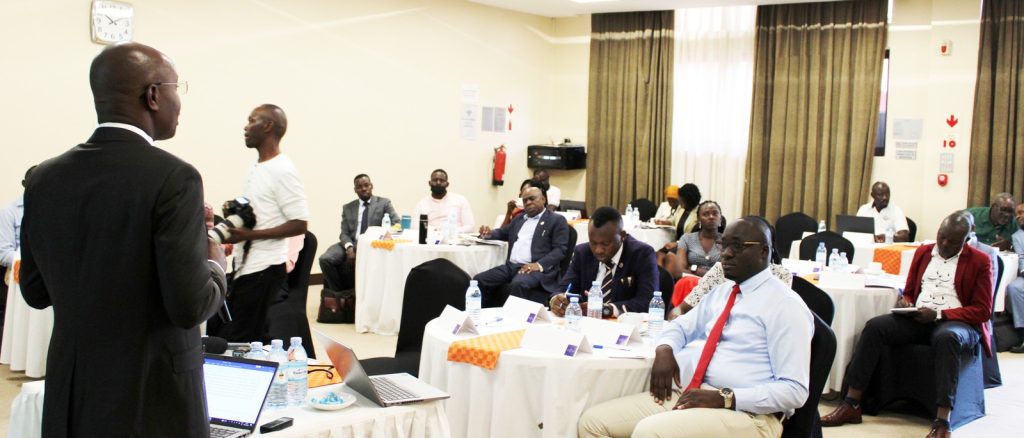
And so given that, if majority of Ugandans are not employed in the services sector which is leading the GDP composition, can we say our economy is having a jobless profile? We are growing without jobs and then on the other hand, can we say it is the supply side and skills mismatch? Do those people that graduate every year in universities and other institutions match the available opportunities?.Prof. Bbaale questioned.
Prof. Bbaale also stressed that the issue of youth unemployment and under employment is topical and has gone on for sometime but not leading the same in finding a lasting solutions for the youth unemployment problem.
He congratulated the research team for successfully implementing the study and partners – the Mastercard Foundation through the partnership for economic policy in Nairobi for sponsoring the different activities of the project as well as the stakeholders from MDAs, Private sector, CSOs and development partners for contributing wonderful ideas.
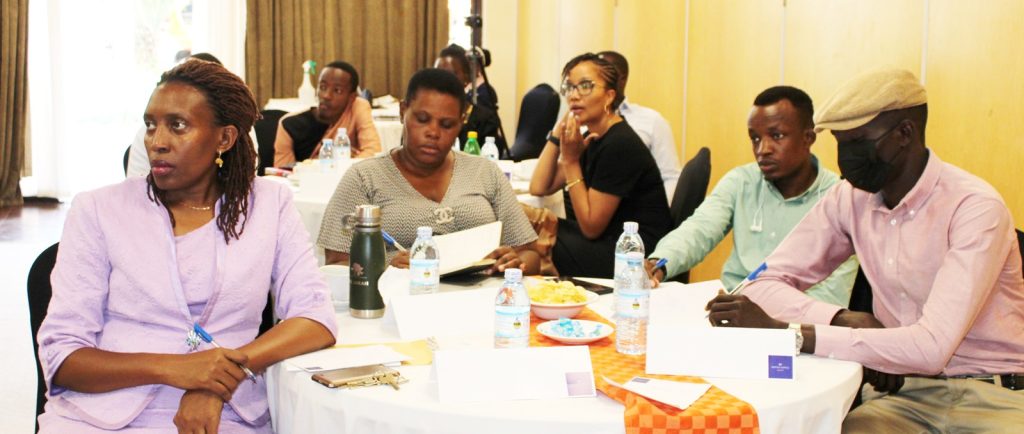
Unemployment associated with Labor market information system, curriculum design and population growth
The Assistant Commissioner in charge of Youth Affairs in the Ministry of Gender, Labour and Social Development Kyateka Mondo thanked the PI and team for putting the research together saying, they are looking forward to receiving what the university thinks is the solution to unemployment question in Uganda.
In addition to addressing the issue of labour market information system, the commissioner observed that it is prudent for training institutions to interface with employers while designing the curriculum but also address the issue of population growth.
“The problem in Africa is that we train today what was needed for yesterday. Are the training institutions in touch with the people who employ? Do you have a time where we interface with the Mukwanos and UMAs of this world and all the people who need the work force?
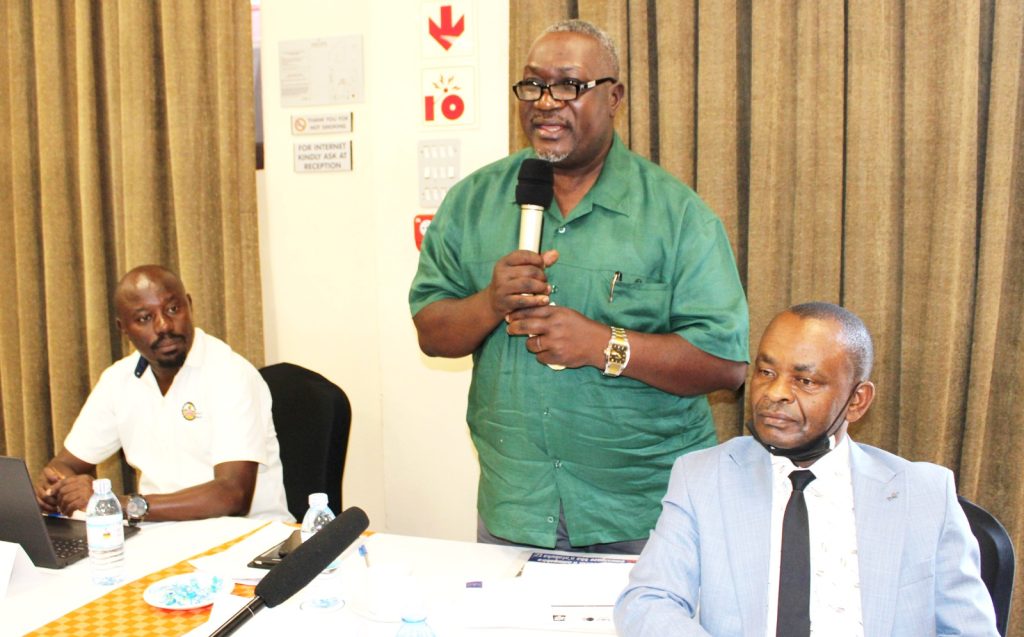
Second,… we are likely not to break even until we address the issue of population growth. As long as we are producing as if there is no tomorrow. As long as we believe in Genesis that go out there and multiply and fill the world.How are you going to prepare and skill them to get quality education. And the man who tells you to go and fill the world produced only one son –Jesus Christ.”, Mondo stated adding that:
“.. until the population question is addressed and until the training institutions sit together with who is going to employ their products, , there will be nothing new that we are going to hear. The skills given at training institutions do not match the labour markets. So until we move away from the book of lamentations to the book of acts and we act.
Fix the issue of so many children, fix the issue of poverty among our people, fix the issue of a functional and prudent labour market information system. We need action today to bring hope to so many young people in this country but we also have to do mindset deconstruction”. Mondo asserted.
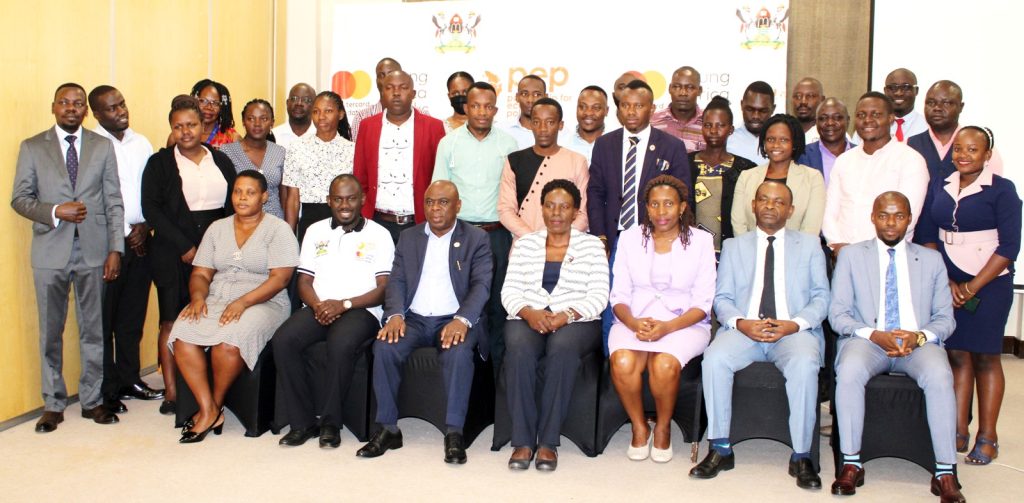
Mondo further observed that over 45 universities are churning out young people every year, operating under a jobless economic growth in that, the economy is not producing the jobs that are badly needed. He added that if unemployment question is fixed, many other problems like poverty, drug abuse early pregnancies, theft, suicide would have been fixed.
Formal employment and trends in youth unemployment in Uganda
Presenting the study findings Peter Babyenda noted that formal employment share of government jobs declined from 6.8% in 2012/13 to 6.5% in 2016/17 while total formal private employment declined from 200,000 jobs in 2012/13 to 141,000 in 2016/17. In 2016/17, only 13,000 (9%) youth had a formal private job.
On trends in youth employment, Babyenda reported a fluctuating Labour Force Participation Rate – 57% (2016/17), 66% (2017/18), 62% (2018/19), and an increasing youth unemployment rate – 13% (2016/17), 18% (2017/18), 17% (2018/19)
Babyenda presented worrying statistics on Youth neither in Employment nor in Education or Training (NEETs) estimated at 39%. This is worrying – where are they? He said there are twice young ladies in NEET as men largely found in in Greater Kampala, Northern Uganda and Western region which is a big threat to Uganda’s social cohesion and political stability.
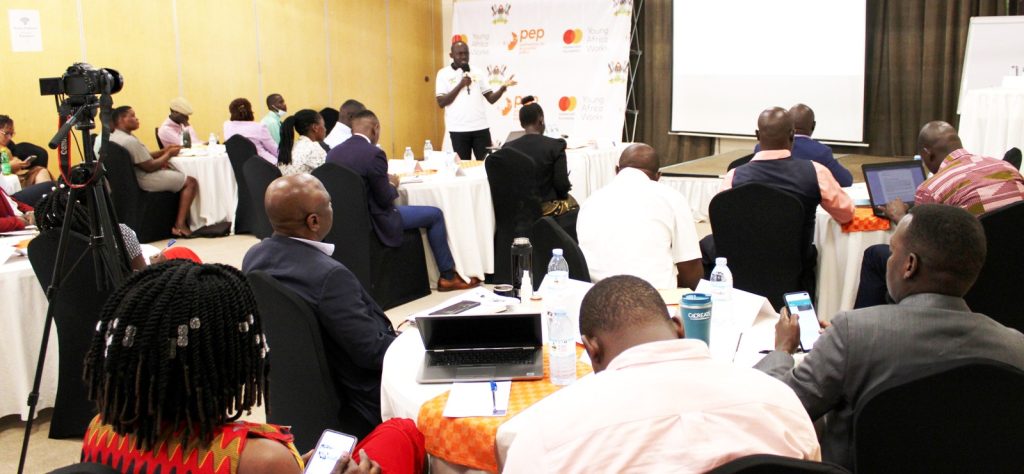
NEETS according to Babyenda are largely attributed to low educational attainment (including among their parents), living in deprived neighborhoods, low socio-economic status and other barriers to participation like pregnancy or disability.
“The 2018/19 Annual Labour Force Survey report reveals that almost half of the youths (46%) are not qualified for the existing jobs because they do not have required skills.Low wages for youth as the median wage of public sector employees is estimated at UGX 510,000 ($134), while in Private Sector it is estimated at UGX150,000 ($39).
Existing employment policies seem universal and do not segregate persons in formal and informal sectors in their coverage. More so, there is limited evidence to show the expansion of social protection coverage in the informal sector as required by the National Social Protection Policies. It also remain unclear whether the existing youth employment programs are achieving their targets” Mr. Babyenda reported.
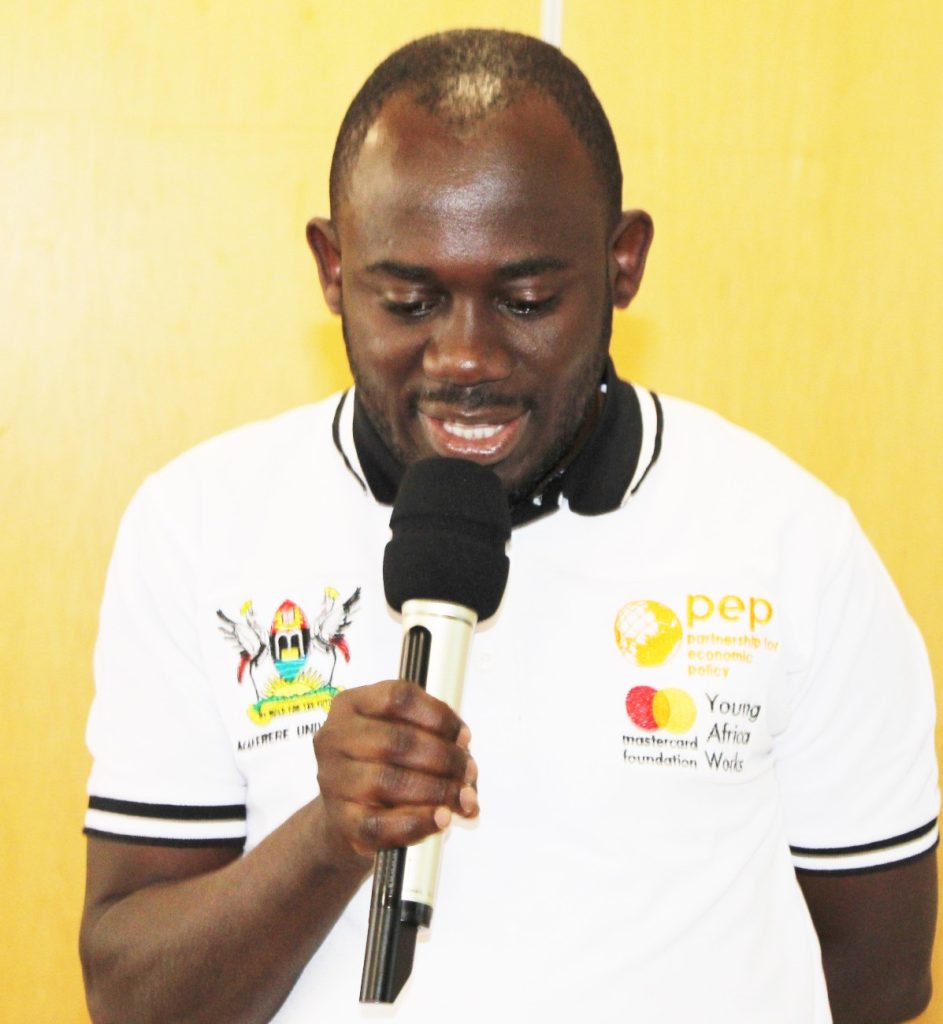
Key findings from the evaluation of the different Youth Empowerment Programs (YEP)
The study indicated that although access to youth employment funds had a positive effect on youth business expansion, there was no significant evidence of the fund’s effect on job creation.
Major stakeholders in YEP were not fully fulfilling their mandates; while on the policy front, the findings show that the youth funds have a long-term impact on its intended goals.
Promoting youth entrepreneurship according to this study should be approached holistically (not just through credit) and should target productive sectors with high employment creation potential.
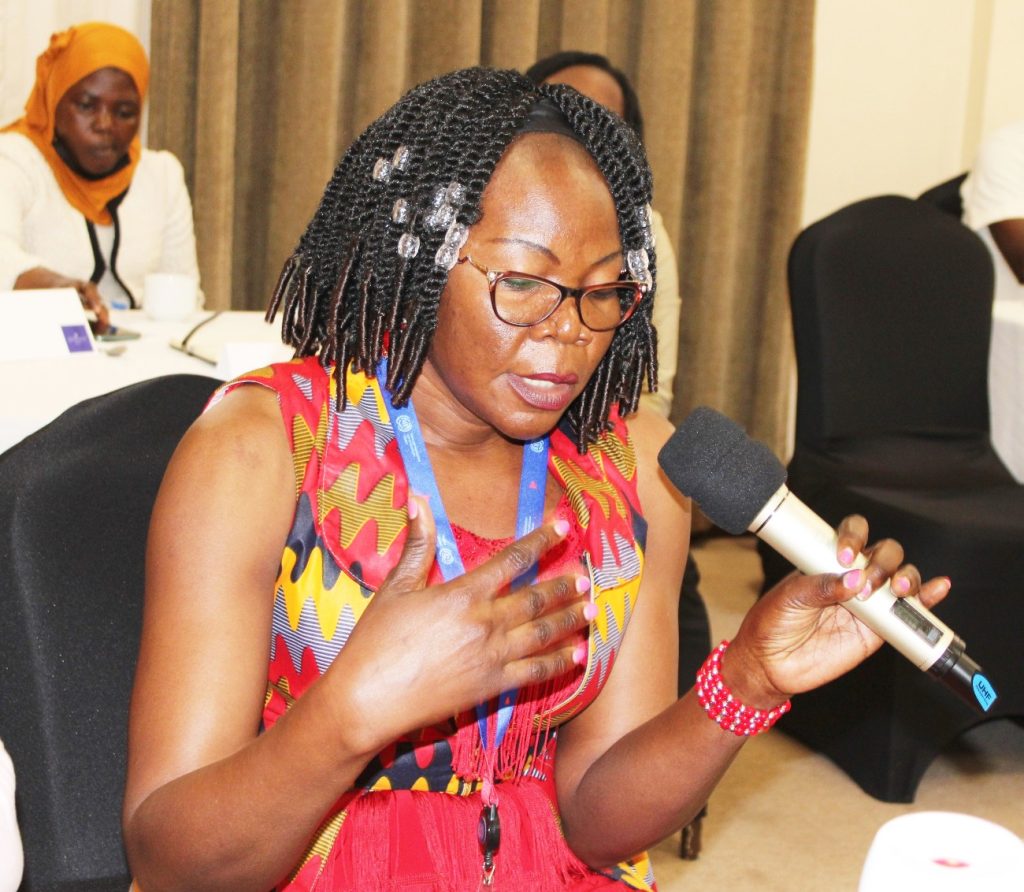
The need for a strong institutional framework including M&E and accountability frameworks and the removal of barriers to youth self-employment were also proposed.
The study disclosed a number of challenges faced by the youth involved in Youth Employment programmes and they included ; Misuse of YEP funds, limited follow-ups of beneficiaries due to inadequate monitoring and supervisory capacity, Political Interference, High default rates (failure repay loans/resolving funds) and Poor group formation dynamics
Beneficiaries according to this research, reported delayed release of funds to youth groups or beneficiaries by the ministry of finance and implementing agencies – MoGLSD, local governments, Corruption, Inadequate information on existence of youth, Education miss-match affecting youth employability AND Limited preparation of beneficiaries
The study notes that common youth challenges in Uganda include: Unemployment, underemployment and undignified work.
The study further notes that Uganda has initiated a number of Youth Employment programs over time such as the youth livelihood fund, presidential youth initiatives, youth skilling programs and free vocational education among others.
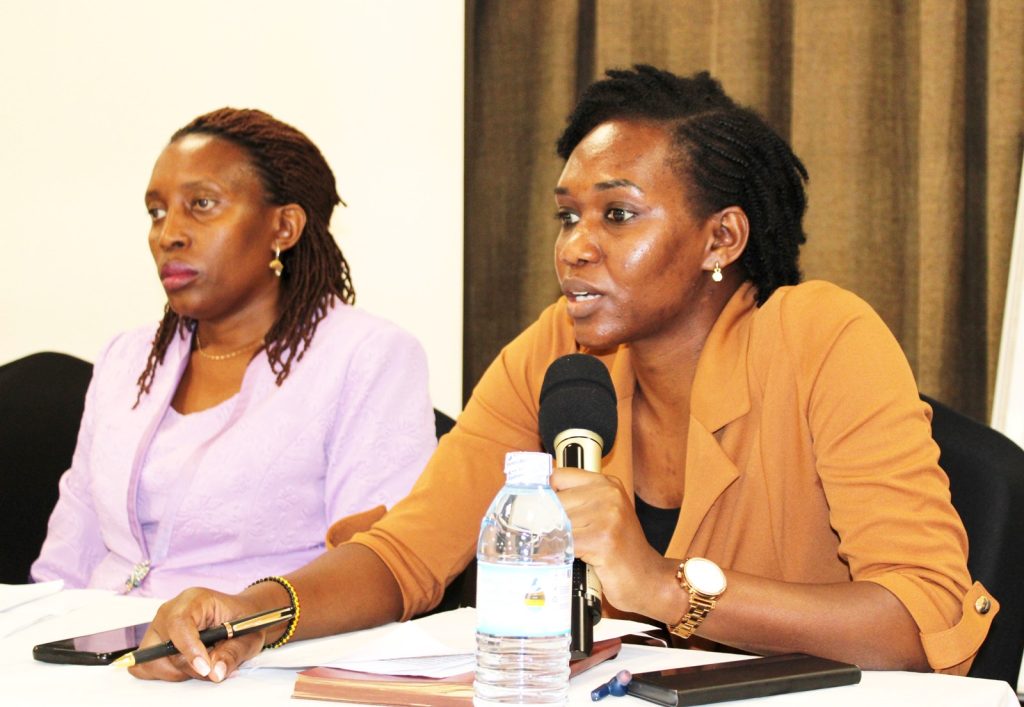
Many Youth (39%) still either not in School or employment and more among females (50.5%) and the need for specific Policy change to ensure that the youth obtain right skills for existing employment opportunities in the country.
Policy recommendations
The study recommends that government prioritise policies that create jobs and address youth unemployment/under-employment and strengthen the YEP’s Monitoring, Evaluation, Research, and Learning (MERL) system.
The study proposes the development of a clear resource mobilization strategy during the YEP design phase and expansion of YEPs into new locations with updated priority areas.
The policy initiatives should be SMART and should reinforce labour market participation, especially regarding discouraged workers and women.
Other policy recommendations include benchmarking with other countries that have succeeded; Reduce of political interferences in the bureaucratic process of the YEP implementation; Increase budget allocation to YEP and also improve the adequacy and effectiveness of the technical support unit of these programs.
In addition, the study advocates for holistic youth employment policy initiatives as opposed to piecemeal, ad-hoc, under-funded and poorly implemented programs. The programs should be rooted within a wider framework that places structural transformation of the country such as NDP III, Vision 2040, among others.
You may like
-
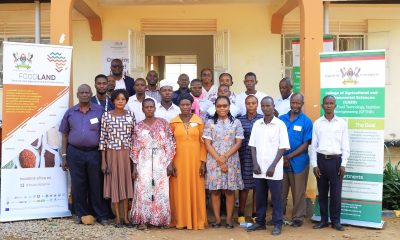

FoodLAND Project Research Dissemination: Nakaseke District Farmers Sensitized on Modern Agricultural Practices & Proper Nutrition
-
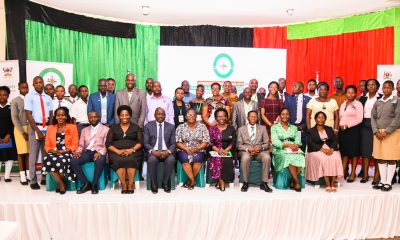

Mak develops new model to aid teaching of Maths in Lower Secondary Curriculum
-
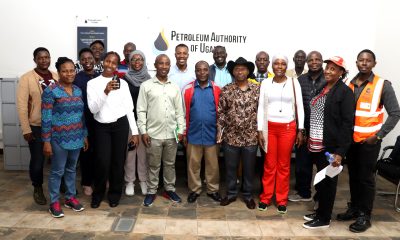

Mak Environmental Economists Explore Uganda’s Albertine Oil Fields: Identifying Research and Collaboration Opportunities
-
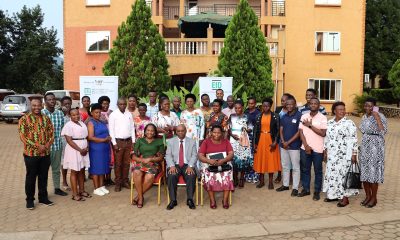

EfD Hosts Policy Dialogue on Energy Efficiency and Reduced Emissions: Hoima Residents Call for Expanded Access to Clean Energy
-
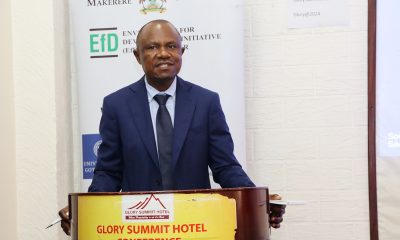

EfD-Uganda Holds Inaugural AGM: Celebrates Milestones and Outlines Future Plans
-
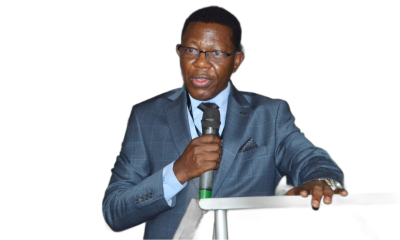

Prof. Buyinza Mukadasi Appointed Acting DVC Academic Affairs
Business & Management
Building Resilience: Makerere Leads Climate Finance Training for Finance Officials
Published
3 days agoon
July 23, 2024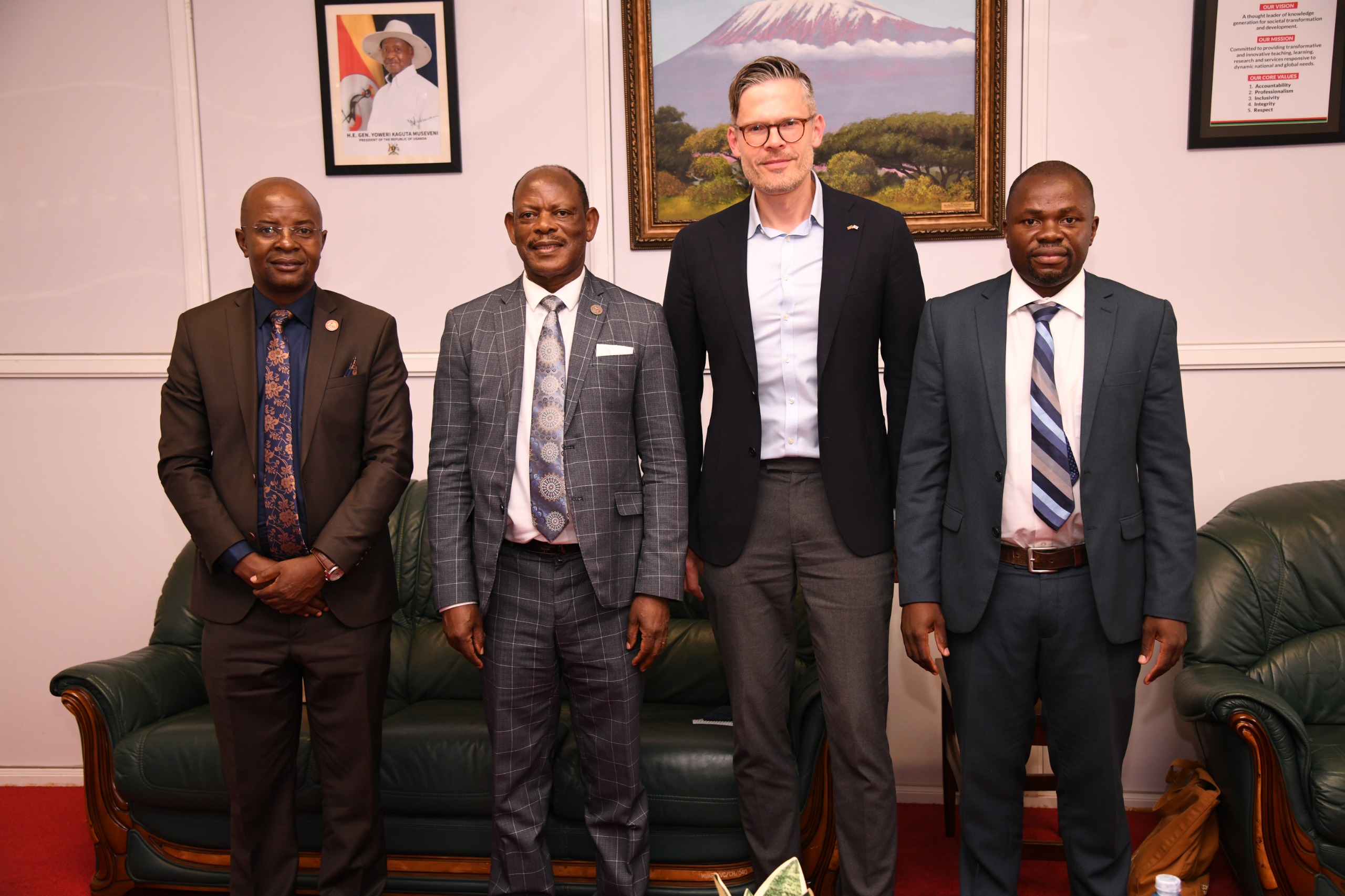
In a significant step towards enhancing Uganda’s resilience against the economic impacts of climate change, Makerere University has partnered with the Centre for Sustainable Finance at SOAS University of London and the World Resources Institute (WRI) to launch the Resilience and Adaptation Mainstreaming Program (RAMP). This initiative aims to equip officials from Uganda’s Ministry of Finance, Planning, and Economic Development (MoFPED) with the knowledge and tools needed to navigate the complex landscape of climate finance.
RAMP is part of a broader international effort to strengthen the capacity of governments, particularly in vulnerable and low- to middle-income countries, to manage the economic risks posed by climate change. Led by the WRI and supported by a network of 20 universities from Africa, Asia, and the West Indies, RAMP focuses on integrating climate adaptation strategies into the core operations of ministries of finance. This integration ensures that economic development priorities are aligned with climate adaptation needs, thereby enhancing access to adaptation finance.
Inaugural Training in Entebbe
The first training session under RAMP held in Entebbe started on July 23, bringing together policymakers and financial experts. Dr. Ulrich Volz from SOAS University of London highlighted the program’s emphasis on promoting high-quality teaching and research on climate adaptation economics and finance. “Working with local universities allows us to scale up the program effectively,” he noted. The network’s diverse range of institutions, including the University of the West Indies, University of Dar es Salaam, and University of Nairobi, underscores its global reach and commitment to building local capacity.
Prof. Edward Bbaale, Principal of the College of Business and Management Sciences at Makerere University, officially opened the 5-day training session. He urged participants to leverage this opportunity to develop their skills in sustainable finance and incorporate these practices into daily decision-making processes. Prof. Bbaale praised SOAS University of London and WRI for their partnership and the extensive training provided to the faculty in Ghana and Nairobi. He highlighted the critical role of education in equipping individuals with the knowledge and tools needed to address climate-related challenges in the financial sector.
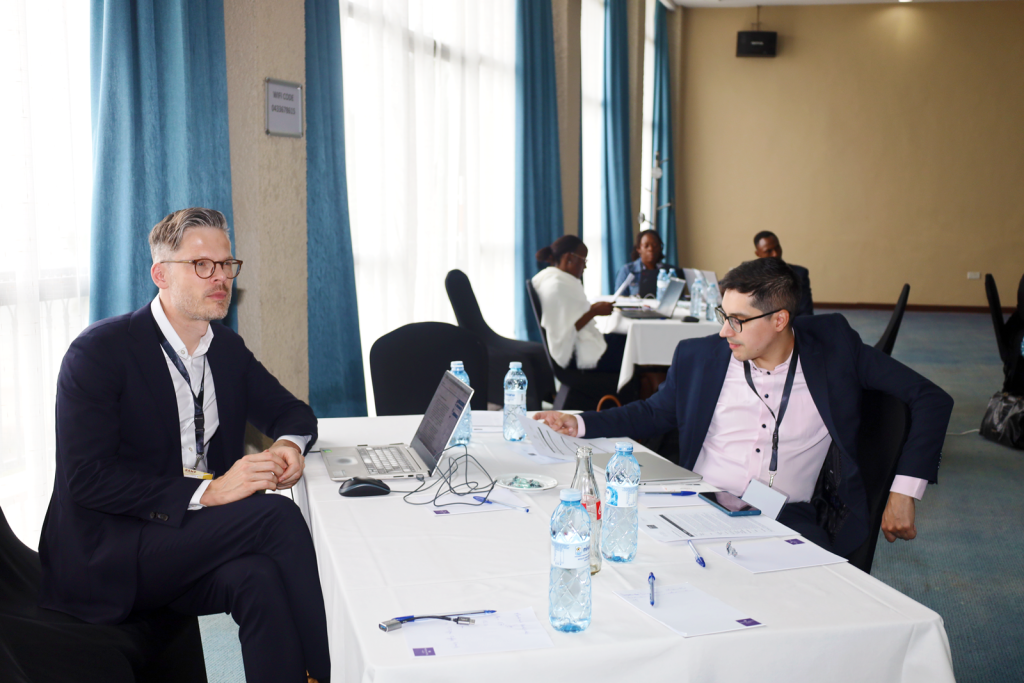
Dr. Harald Heubaum, Deputy Director of the Centre for Sustainable Finance at SOAS University of London, added that the program provides interdisciplinary training for policymakers, focusing on macro-fiscal policies, budgeting, financial sector supervision, trade, and public financial management. “We hope to use this workshop to build a shared understanding of the economics and finance of climate change adaptation,” he said.
Highlighting the Importance of Climate Finance
Mr. Bradley Kratzer, Adaptation Finance Associate at WRI, stressed the importance of integrating climate change considerations into financial decision-making processes. He called for collaboration between policymakers, financial institutions, and development organizations to address climate change challenges. “Integrating climate risk assessments into economic planning and budgeting is crucial for sustainable development,” he emphasized.
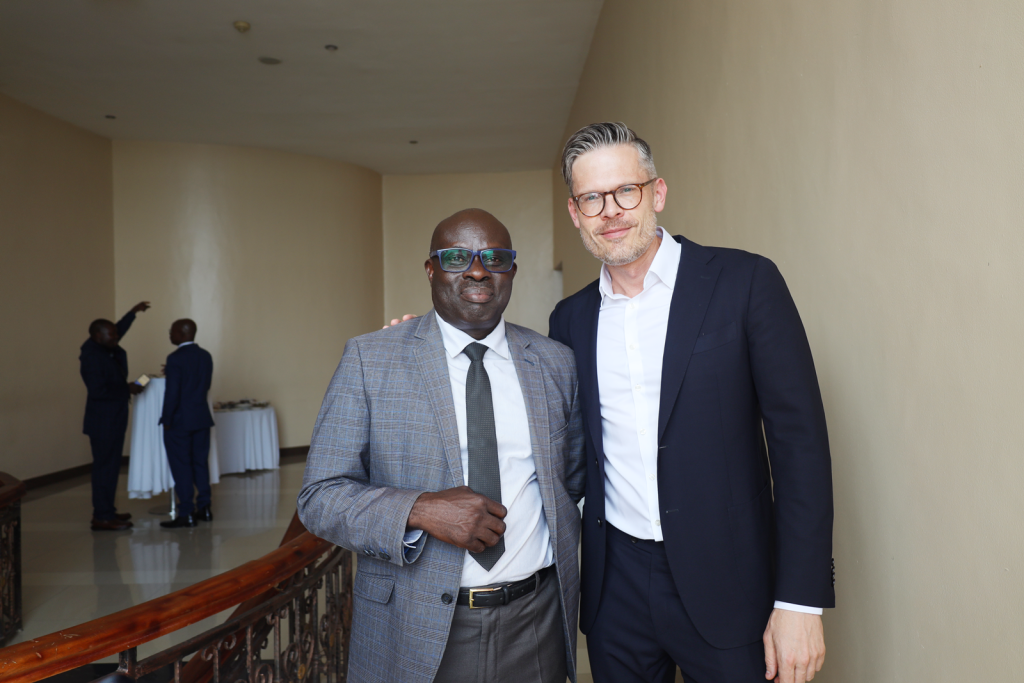
Mr. Sam Mugume from MoFPED’s department of macro-economic policy expressed gratitude for the training, underscoring that climate change is not just an environmental issue but an economic one that requires proper management. He advocated for proactive measures such as investing in resilient infrastructure and promoting green finance initiatives to mitigate economic risks.
Climate Change Effects on Uganda
Uganda faces significant climate change impacts, including increased temperatures, erratic rainfall, and more frequent extreme weather events such as droughts and floods. These changes threaten agriculture, water resources, and overall economic stability. The agricultural sector, which employs a large portion of the population, is particularly vulnerable, with crop yields and livestock production expected to decline. This not only affects food security but also increases poverty levels, Dr. Ibrahim Mike Okumu shared during his presentation.
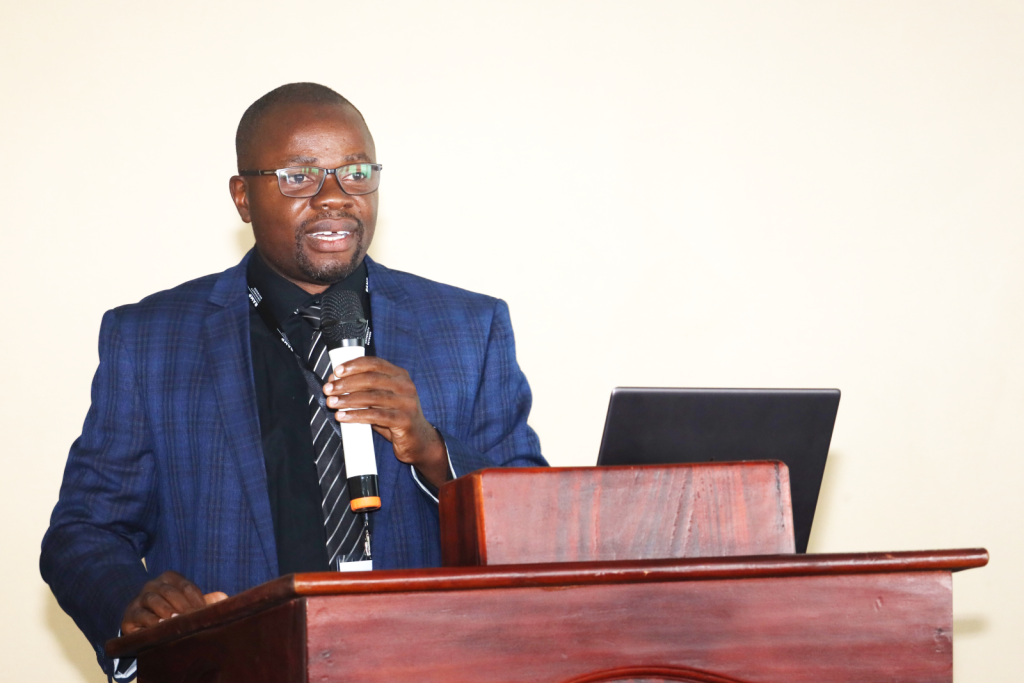
RAMP’s efforts to build resilience and adaptation capacities in Uganda are thus timely and essential, Dr. Mugume added. By empowering government officials with the necessary skills and knowledge, the program aims to ensure that Uganda can effectively manage the economic challenges posed by climate change and safeguard its developmental gains.
The Resilience and Adaptation Mainstreaming Program represents a crucial step forward in the global fight against climate change. By fostering collaboration between leading academic institutions and government bodies, RAMP is setting the stage for a more resilient and sustainable future.
Business & Management
Mak Environmental Economists Explore Uganda’s Albertine Oil Fields: Identifying Research and Collaboration Opportunities
Published
4 days agoon
July 22, 2024By
Jane Anyango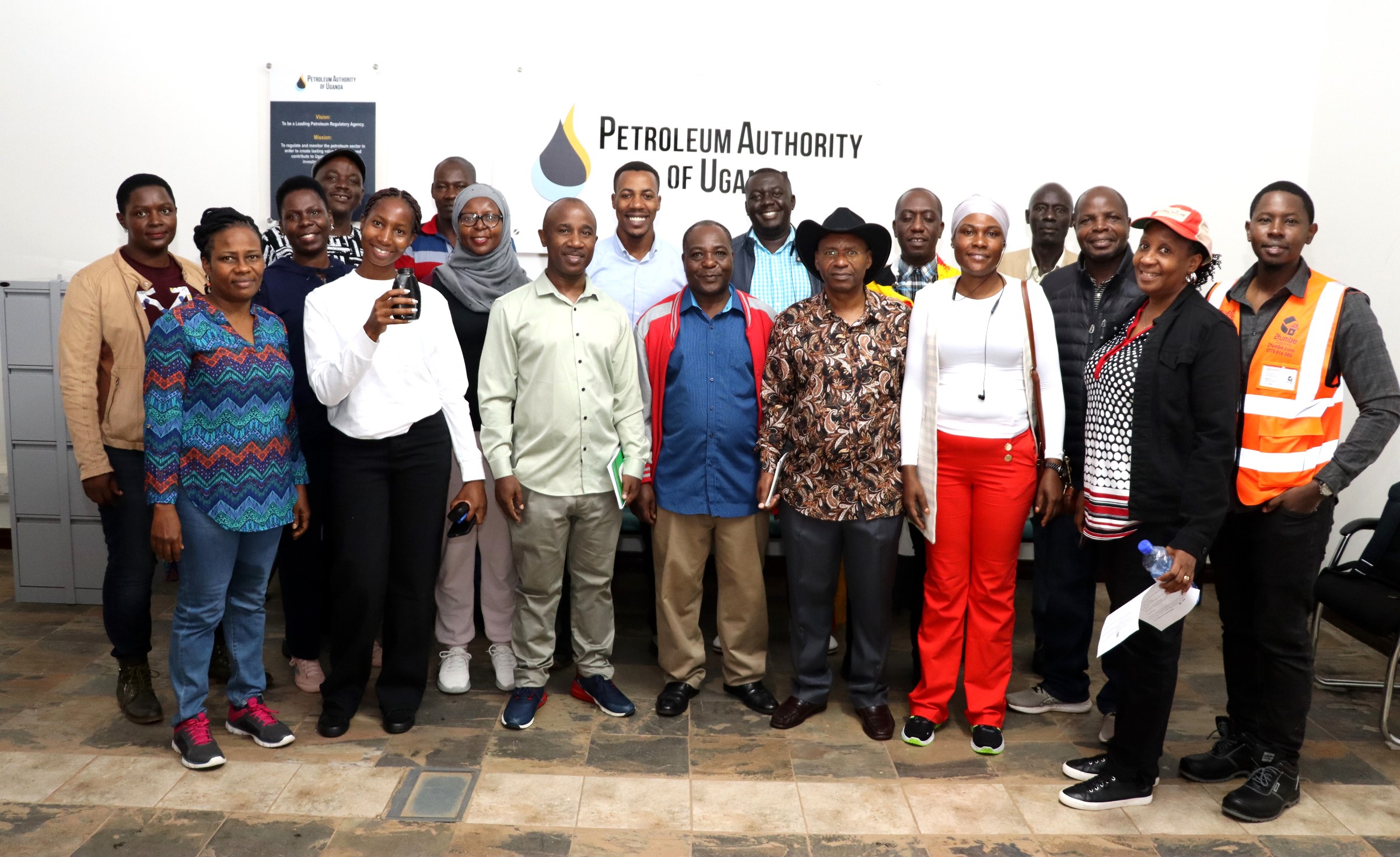
A team of environmental economists from Makerere University recently visited the Albertine oil fields in Uganda to assess ongoing operations in terms of oil and gas exploration and uncover potential research and collaboration opportunities.
The field visit conducted from 17th-20th July 2024 by the EfD –Mak centre in the districts of Hoima, Buliisa and Kikuube aimed to bridge the gap between academic research and practical applications, focusing on the interaction between oil extraction activities and local communities, environmental management and sustainable development.
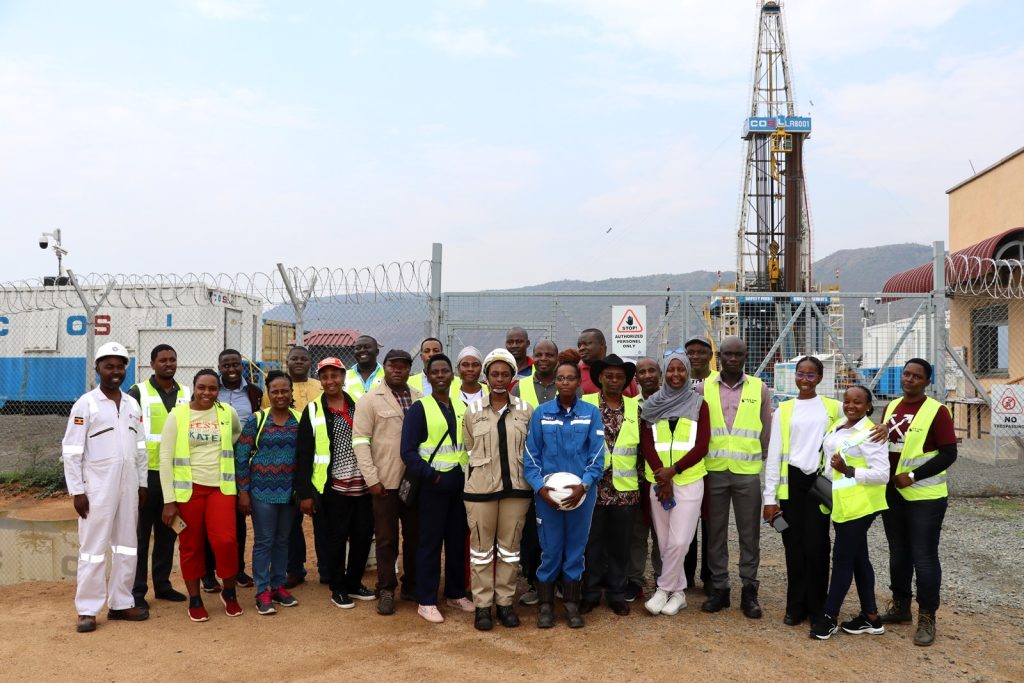
The centre has established two layers of policy engagement by registering key policy actors both at national and subnational levels. This year’s centre theme is “Energy Efficiency”. The theme was selected following the need for transformation from biomass dependence to cleaner energy sources at household level, but also the need for cleaner energies in manufacturing, transport among others.
The reliance on biomass is a key global challenge towards environmental protection and reversing climate change effects. In Uganda, over 85% and 13% of the population use firewood and charcoal for cooking respectively.
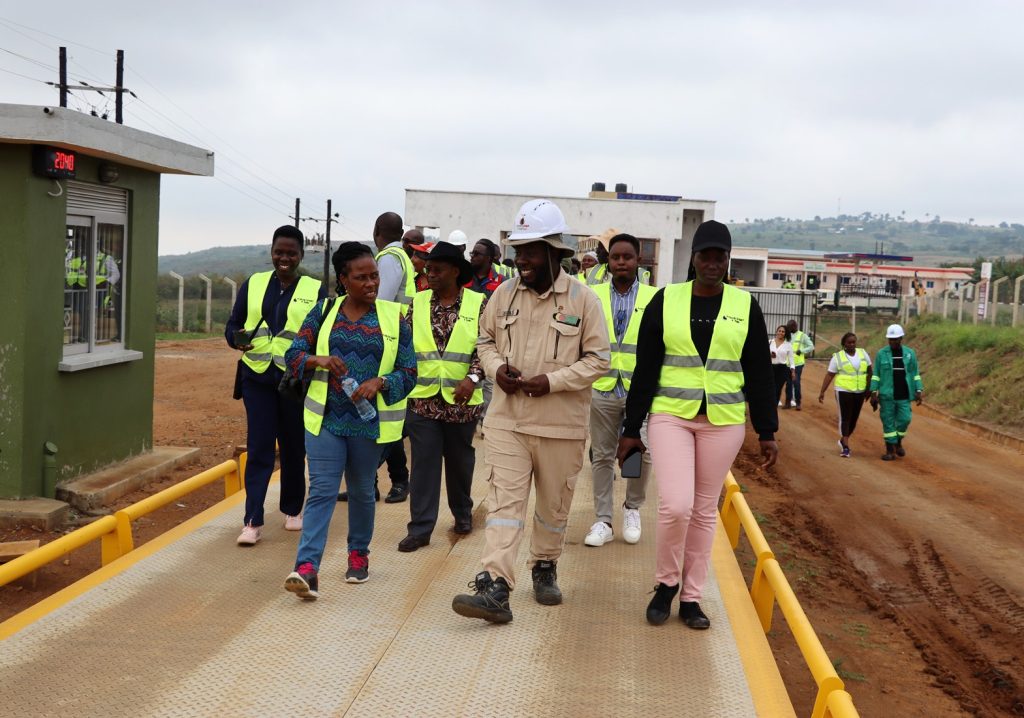
Established in 2018 and inaugurated at Makerere University in 2019, the EfD Mak centre strives to foster transdisciplinary research, knowledge transfer, and research-to-policy engagement and community interventions in environmental economics.
In view of the above, the centre organized a three day outreach in three districts and held her inaugural Annual General Meeting and launched a policy dialogue on 18th July 2024 at Glory Summit Hotel in Hoima which attracted over 60 people including district leadership, community based organisations, civil servants, private sector and academia.
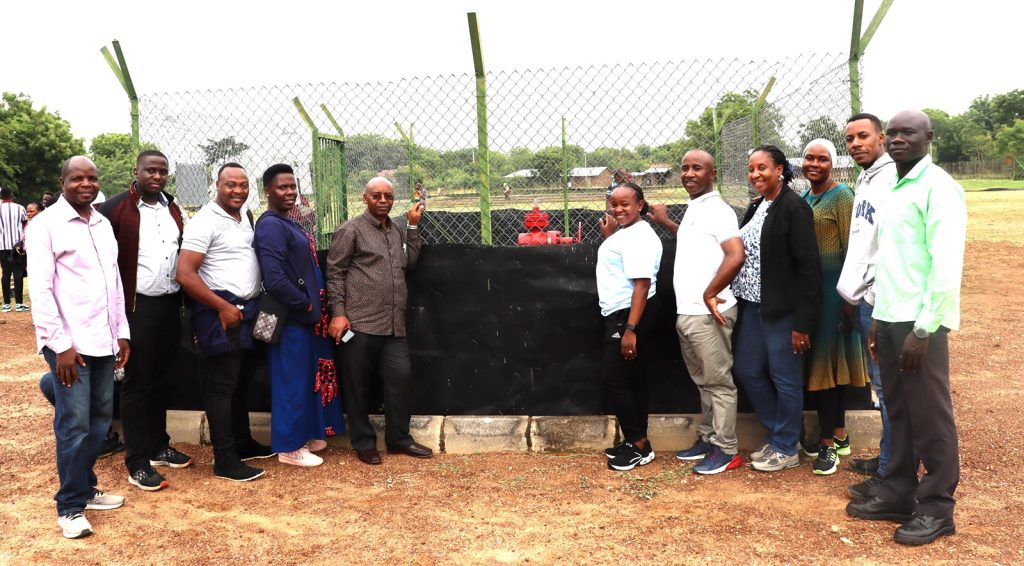
For the last two days, the researchers led by the Centre Deputy Director Prof Johnny Mugisha visited the Uganda Petroleum Authority in Hoima, visited oil wells including the Central Processing Facility, King fisher, Tilenga Industrial Park, Kasemene site 1, the Luwero Industries Ltd Oil waste treatment plant and the Kabalega International Airport.
“The objective of visiting the oil and gas sites and companies is to enable our research fellows familiarize with activities and operations in Uganda’s oil and gas with a view of fostering researchable projects, constructive dialogue and policy developments on critical issues related to sustainable development, environmental stewardship, environmental risk management and responsible oil and gas operations in the sensitive ecosystem of Lake Albert and Murchison Falls National park”, team leader, Prof. Mugisha explained.
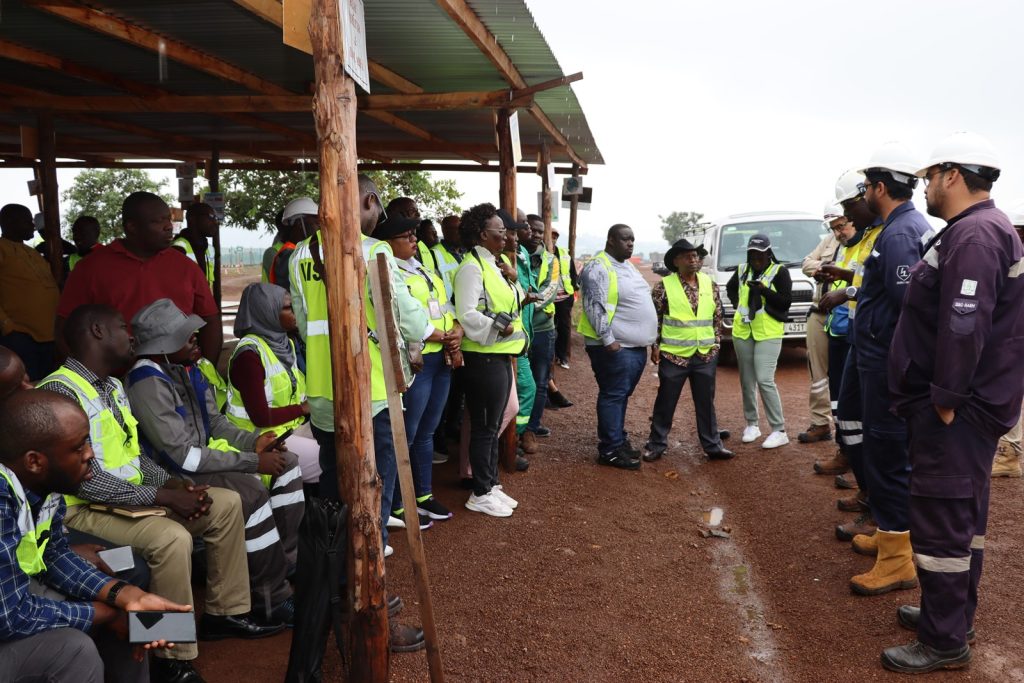
The centre’s areas of interest included the environmental impact assessment and monitoring, petroleum waste management practices, integration of biodiversity conservation, community engagement and socio economic impacts.
Other areas of interest were regulatory framework and compliance, water resource management and protection, climate change resilience and adaptation strategies, corporate social responsibility initiatives, long term environmental management plans and how Makerere University can collaborate effectively with the Petroleum Authority of Uganda, CNOOC, UNOC and Total Uganda to enhance research and knowledge sharing on sustainable practices, environmental conservation and petroleum management.
EfD Researchers Gain Critical Insights from Oil and Gas Community Visits
Researchers concluded a three-day visit to oil and gas communities, gaining firsthand insights into the sector’s impact and future prospects. The visit emphasized the need for informed research and sustainable planning to maximize the benefits of Uganda’s oil and gas resources and prepare for future challenges.
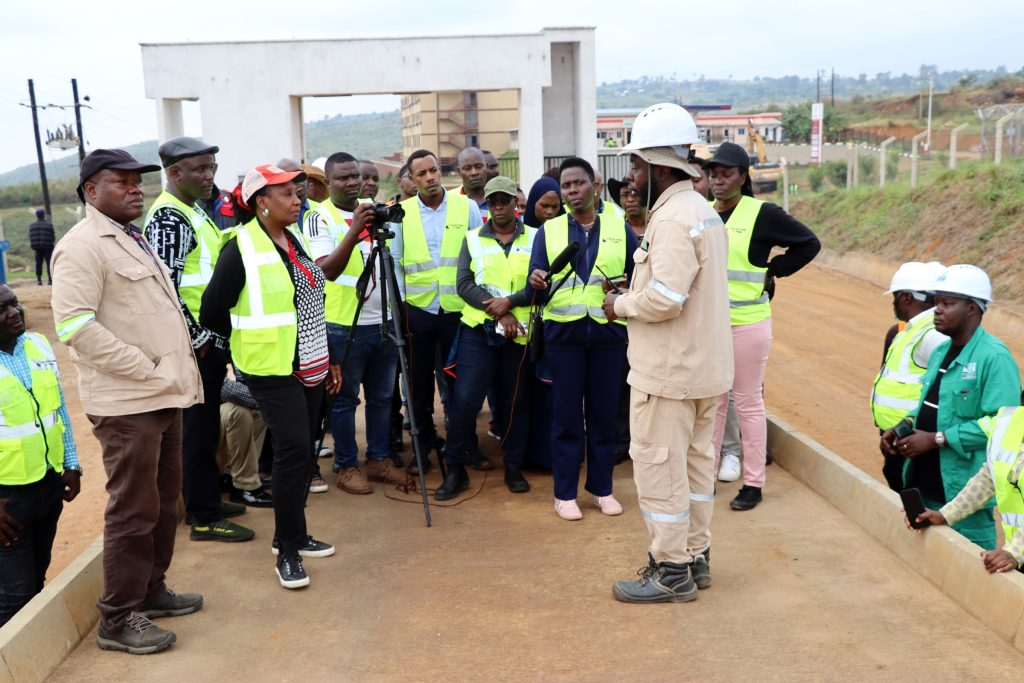
Firsthand Observations Critical: Dr. Madina Mwagale Guloba, Senior Research Fellow at EfD Mak, emphasized the value of seeing conditions on the ground to counteract misinformation about oil and gas exploration. “Seeing is believing, and seeing also learning from a point of view is very critical,” she stated. Dr. Guloba dispelled what she termed “corridor talk,” noting that community members affected by oil projects appeared happier and saw more opportunities. She stressed the importance of sustainable planning, saying, “In the next 30 years, people would have gotten even more opportunities.”
Cross-Cutting Research Needed: Prof. Johnny Mugisha, Deputy Centre Director, emphasized the necessity of interdisciplinary research, noting the interdependence of the petroleum sector and farming communities. He underscored that Makerere University needs to boost its research and outreach efforts to aid policy development. “From interactions in Hoima, Bulisa, and with people in the oil sector, the lessons learned indicate that Makerere University has much more to contribute, especially in research, outreach, and grassroots stakeholder engagement. We often view the petroleum and gas sector as separate from farming communities, but our experiences show a significant relationship and interaction between them. Therefore, research should not be limited to one entity but should be cross-cutting,” stated Mugisha.
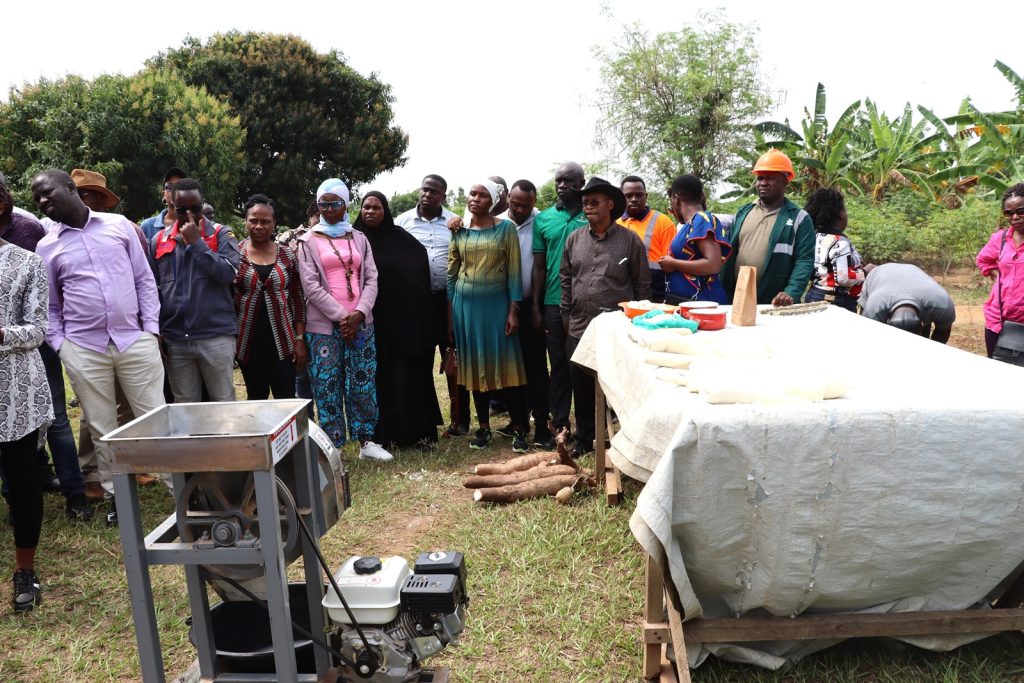
On-the-Ground Engagement: Dr. Alex Tatwangire, Research Fellow and Lecturer, emphasized the value of direct stakeholder interaction, noting effective environmental mitigation plans and agricultural integration in restoring livelihoods for project-affected persons. He called for continued research to address policy gaps. The visit highlighted the importance of informed research and sustainable planning in maximizing the benefits of Uganda’s oil and gas resources while preparing for future opportunities.
Reflecting on his experience, Dr. Tatwangire remarked, “This engagement with stakeholders on the policy of energy utilization in Hoima has been incredibly useful. We’ve had the chance to observe the oil extraction process firsthand. Reading about it and hearing about it is one thing, but going on the ground and interacting with everyone involved provides a much richer understanding.”
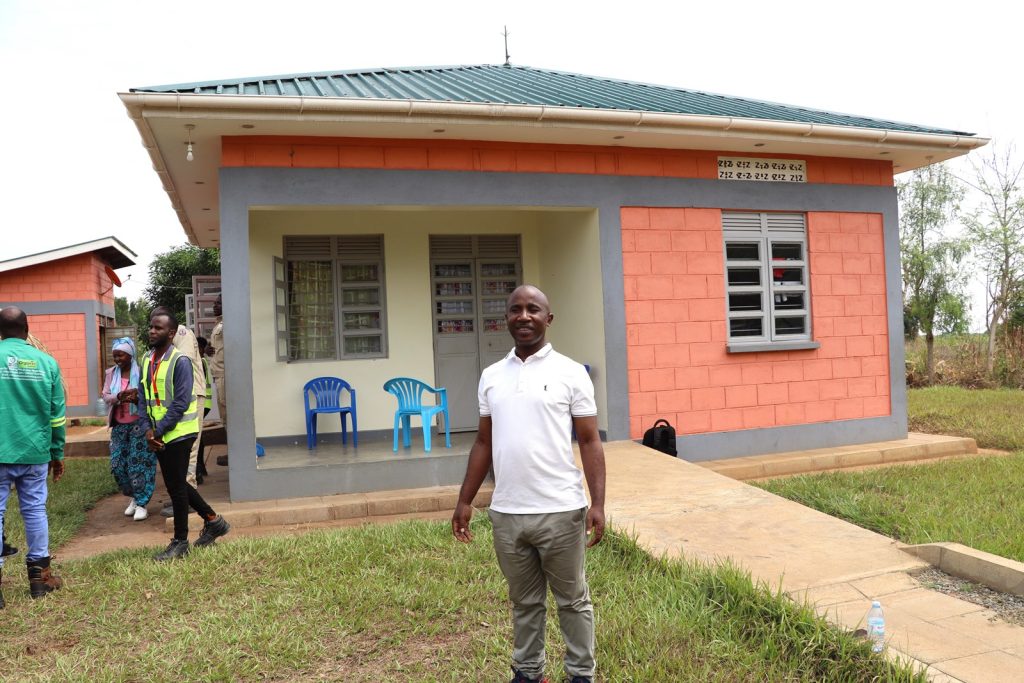
He continued, “Seeing the wells, well pads, regulations, infrastructure, and the oil pipeline being laid, and being assured that oil will flow within a year, has been enlightening. We’ve learned a lot about the connections between the environment and how plans are in place to mitigate environmental damage. We also saw how agriculture is integrated into livelihood restoration for project-affected persons, with strategies to strengthen these livelihoods through training, seeds, and advanced technologies.”
Dr. Tatwangire concluded, “I return with a great appreciation for the progress being made. As researchers, our role is to identify gaps, explore research questions, and provide the evidence policymakers need to improve policy planning. I am grateful to EfD, our financiers, and Makerere University for these opportunities, and I hope for more such engagements to enhance our relevance in policy debates and development.”
Jane Anyango is the Communication Officer EfD Uganda
More photos from the Field Visit
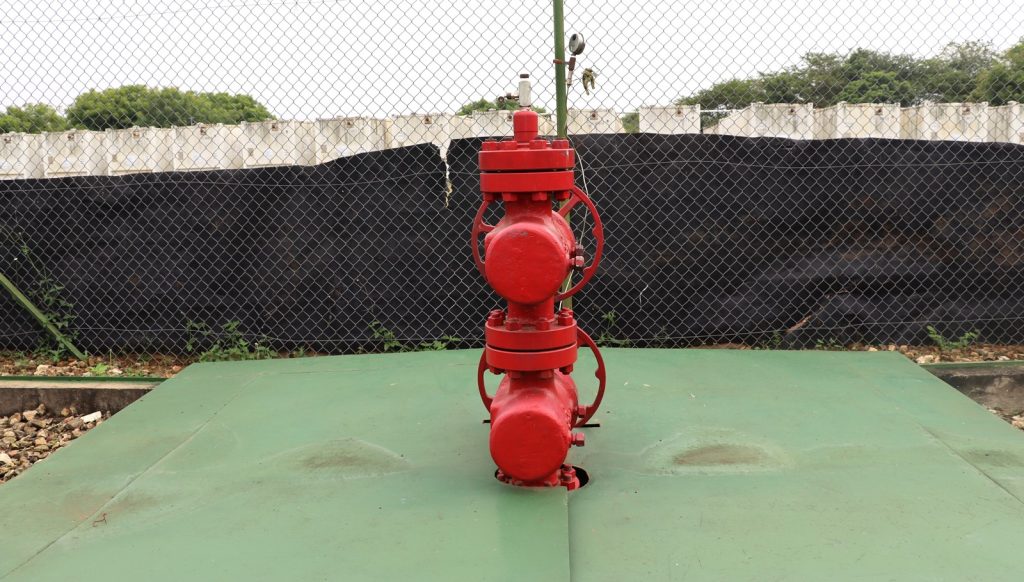
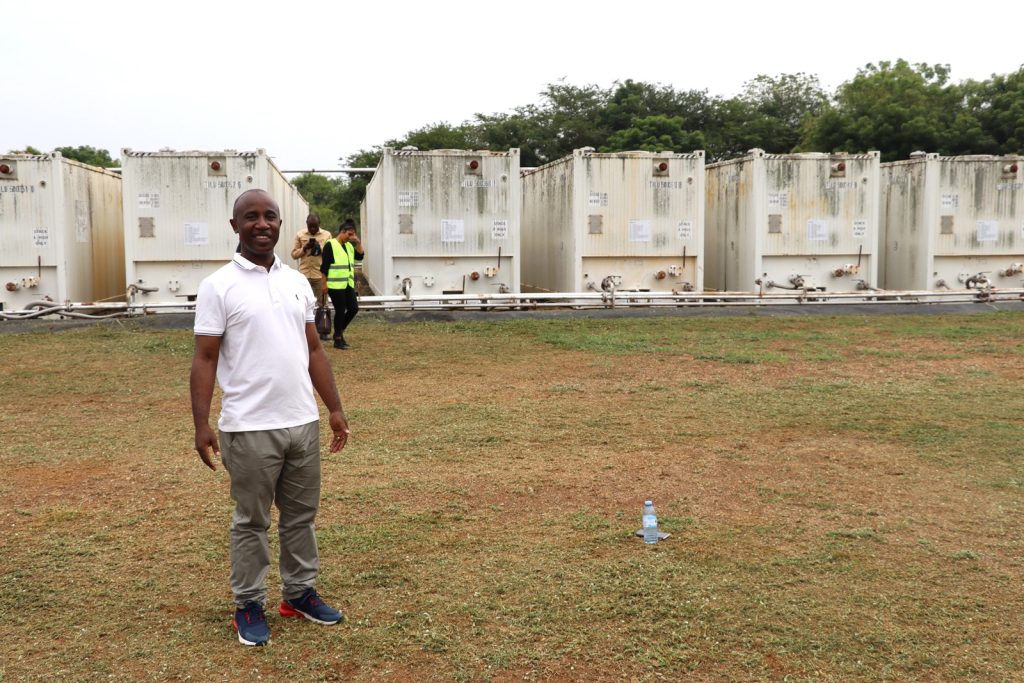
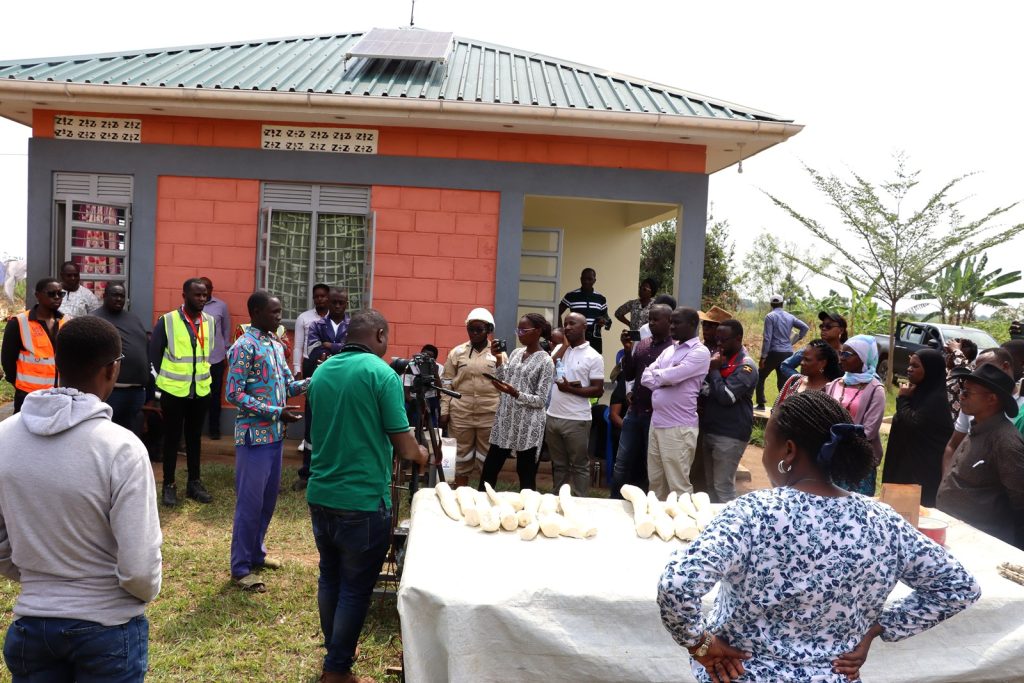
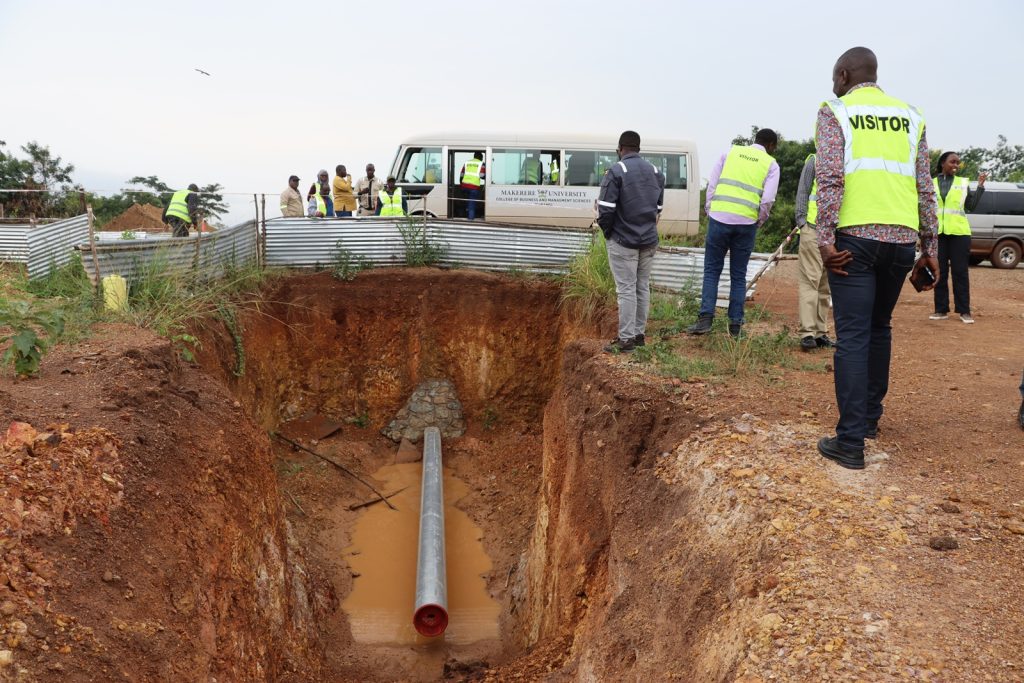
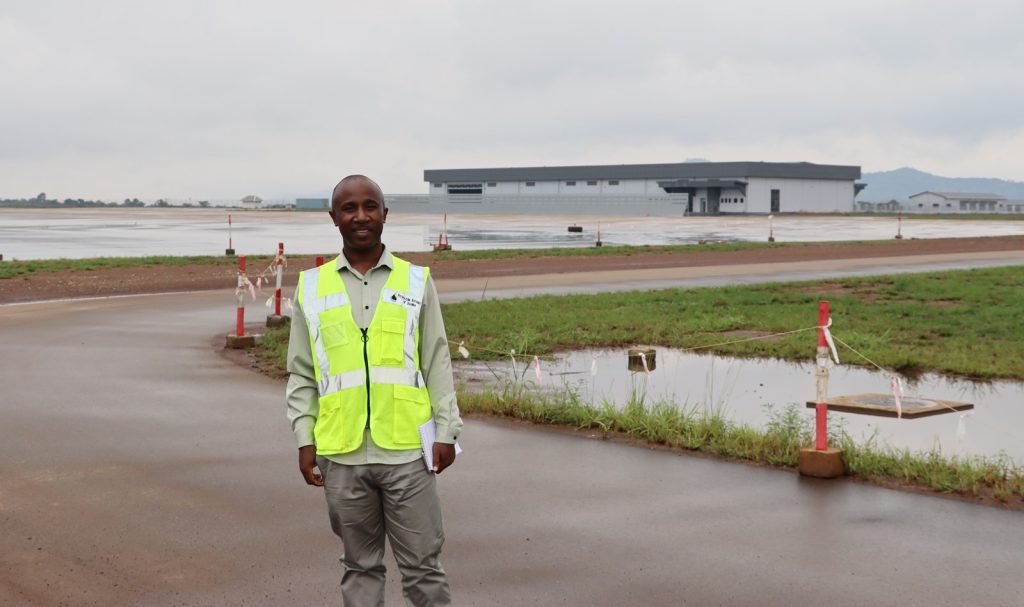
Business & Management
EfD Hosts Policy Dialogue on Energy Efficiency and Reduced Emissions: Hoima Residents Call for Expanded Access to Clean Energy
Published
4 days agoon
July 22, 2024By
Jane Anyango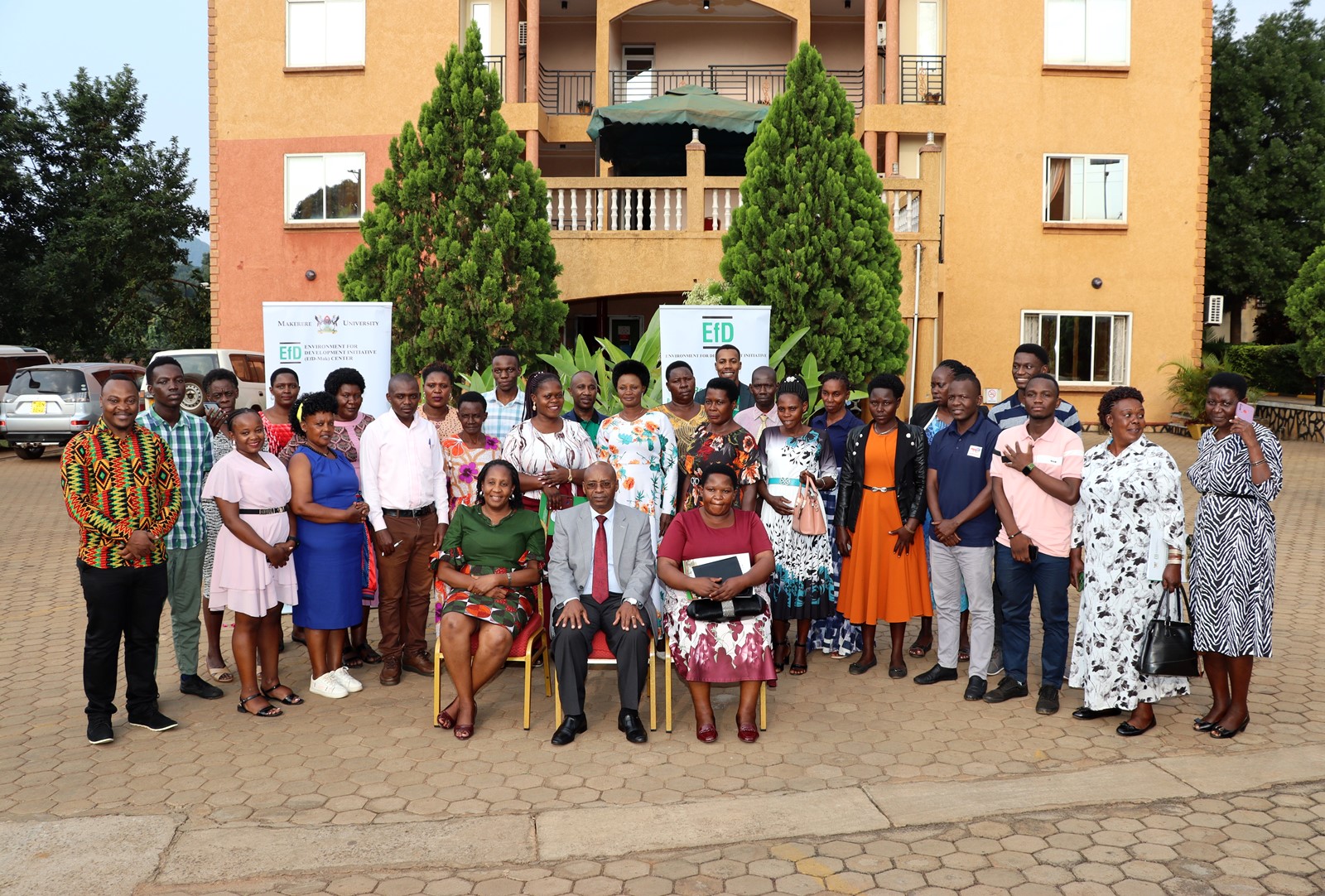
Hoima, July 18, 2024 – Stakeholders from Hoima’s local government, private sector, and civil society organizations have urged the government to expand access to clean energy sources like electricity and LPGs to facilitate the country’s transition from biomass and achieve its green growth strategy. Despite Uganda’s capacity to generate and export electricity to neighboring countries, access and affordability remain significant challenges for rural areas and a large portion of the population.
During a policy dialogue hosted by the EfD-Mak Center in Hoima, themed “Energy Efficiency and Reduced Emissions in Uganda: Facts and Prospects,” stakeholders highlighted the necessity of addressing these challenges. The event, part of the EfD Annual Meeting, gathered district local government officials, both technical and political, as well as academia, youth, and members of the private and civil society organizations.
In his opening remarks, Prof. Johnny Mugisha, Deputy Director of the EfD-Mak Center, emphasized the importance of holding the dialogue in Hoima due to the region’s developments in energy. “The energy we are talking about includes firewood, charcoal, petroleum, electricity, and many others. We deliberately chose Hoima because of the energy developments here, and we are looking forward to petroleum-sourced energy,” Mugisha explained.
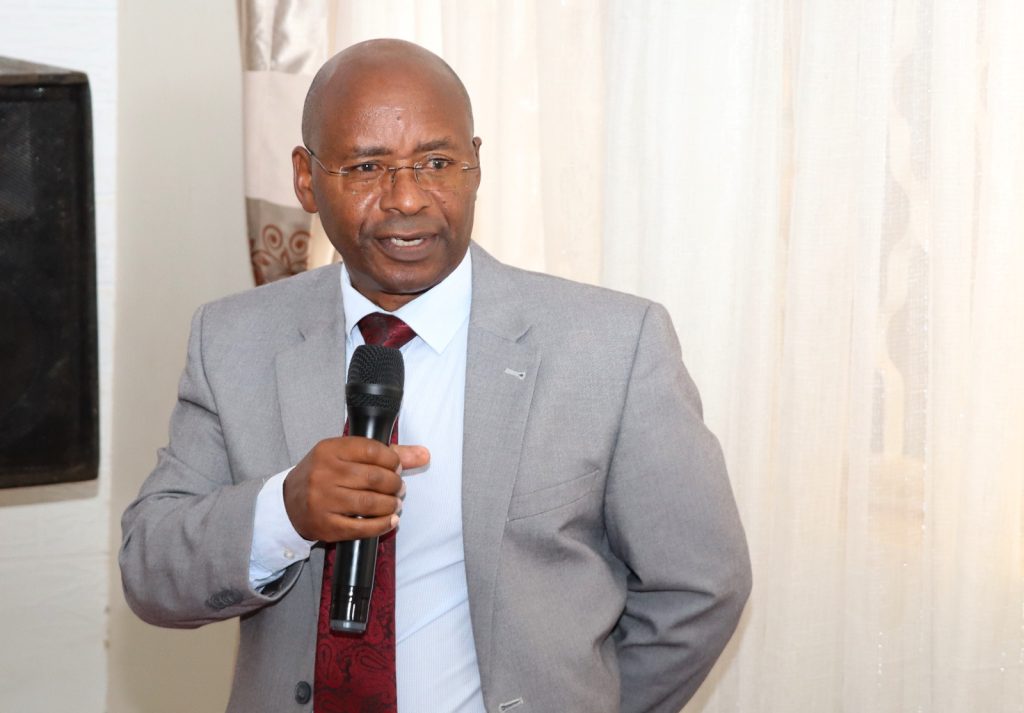
He noted the slow and long-term transition from biomass to cleaner energy sources, underscoring the need for discussions around biomass and clean energy. “Energy efficiency means how much you get from the energy you use to achieve a result, for example, how much electricity you use when cooking matooke,” he said. “This dialogue is a roundtable discussion for us all to give our input on what is causing what and how best to sustainably use the environment as we transition to clean energy sources.”
Prof. Mugisha stressed the university’s commitment to promoting such dialogues across the country. “Our intention is to get the root causes right from the grassroots communities so that together we can propose solutions to inform policymakers for decision-making and implementation,” he concluded.
Uganda’s Path to Energy Efficiency and Reduced Emissions: Key Insights from Dr. John Sseruyange
In his presentation Dr. John Sseruyange highlighted the critical role of energy efficiency and emission reduction in transforming Uganda from a peasant society to a modern, prosperous nation, as envisioned under Vision 2040.
“Energy acts as a catalyst that drives all other sectors,” stated Dr. Sseruyange. With agriculture contributing to 71.7% of employment, the mechanization of Uganda’s economy and the expanding transport sector are significantly increasing fossil fuel and biomass usage, leading to heightened carbon emissions and deforestation.
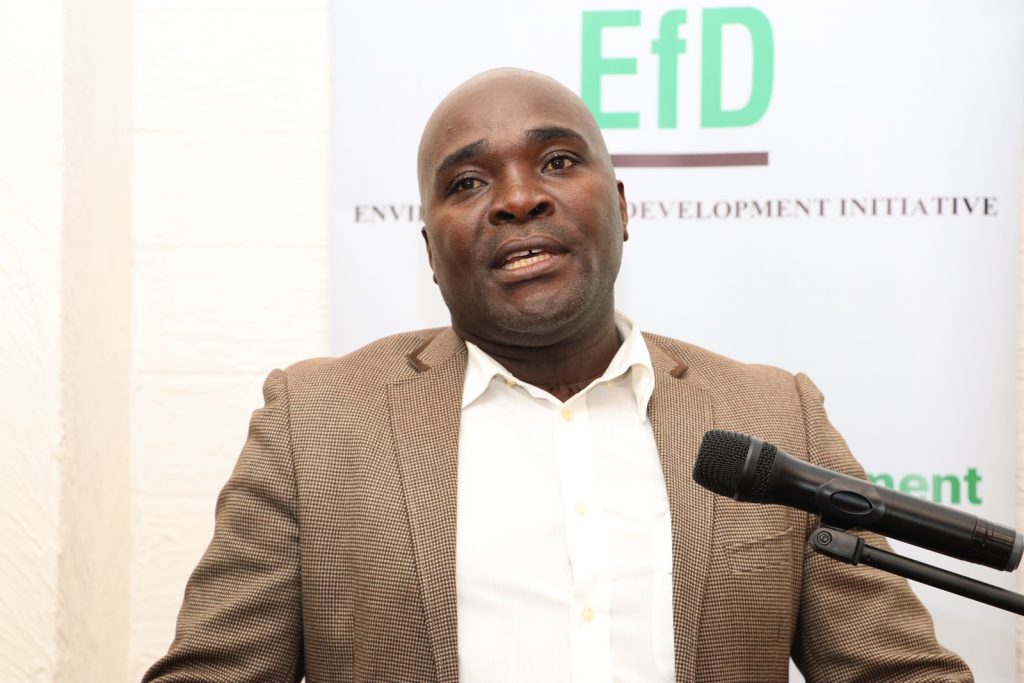
Dr. Sseruyange warned of the dangers of biomass reliance, noting that Uganda’s forest cover has decreased from 24% in 1990 to 9% in 2015 due to tree cutting for firewood and charcoal. “The rapid rate of forest depletion is alarming,” he said, emphasizing the health and environmental impacts of biomass fuels, including air pollution and associated diseases.
The presentation highlighted that women and children, especially girls, are disproportionately affected by biomass fuel collection, which hampers productive activities and schooling. “The burden of wood fuel collection falls heavily on women and children,” noted Dr. Sseruyange.
Dr. Sseruyange identified several barriers to energy transition in Uganda, including weak implementation capacity, cultural preferences, and limited accessibility to affordable and reliable clean energy. He pointed out that only 42% of the population had access to hydropower by 2021, and many clean energy systems, such as LPG, remain unaffordable for small businesses.
Addressing governance, Dr. Sseruyange explained the complex interplay of institutions involved in promoting efficient energy systems, ranging from the Ministry of Energy and Mineral Development to international organizations like the World Bank. He stressed the importance of household and industrial capacity in adopting new technologies.
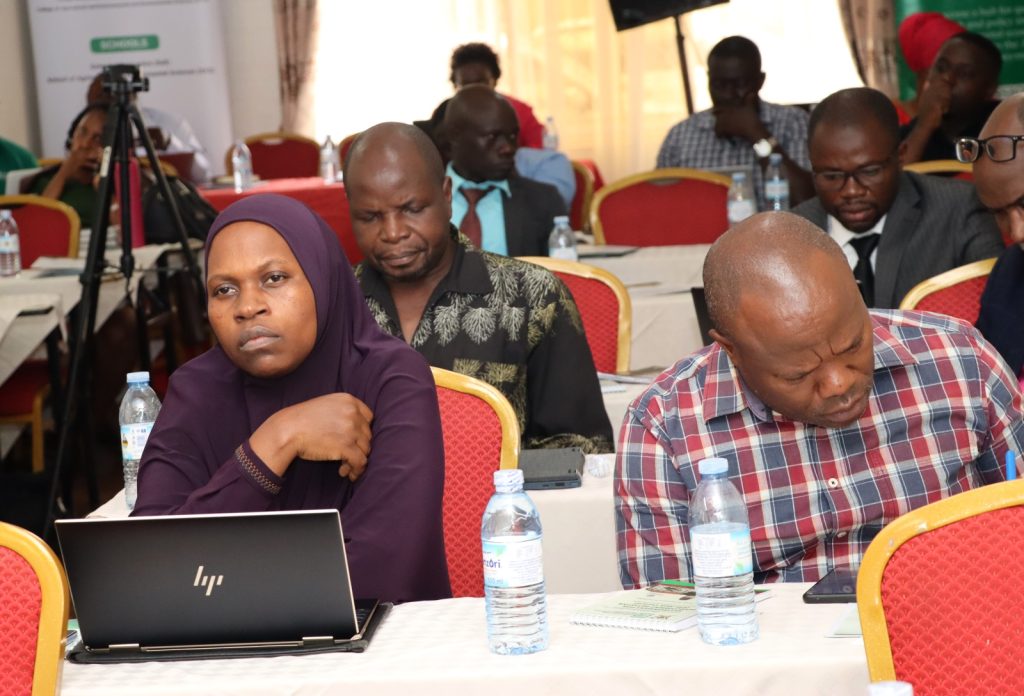
Despite these challenges, Dr. Sseruyange outlined several promising initiatives aimed at enhancing energy efficiency and reducing emissions. Vision 2040 focuses on upgrading industrial technologies to less energy-consuming alternatives. The National Development Plans aim to increase clean energy accessibility and promote efficient cooking technologies. The Uganda Green Growth Development Strategy emphasizes low carbon development and solar energy installation.
Additionally, Uganda’s hydropower capacity has increased from 1278.6 MW in 2019/20 to 1370.8 MW in 2021/22, demonstrating improved energy generation capacity. Solar energy expansion efforts have resulted in off-grid solar installations reaching 30,000 households, with several solar PV plants contributing over 65 MW. The Clean Cooking Supply Chain Expansion Project has sold 72,535 energy-saving stoves by 2020. Furthermore, the government is aiming to distribute 1 million subsidized LPG cylinders to promote cleaner cooking technologies.
Dr. Sseruyange also highlighted the establishment of Kiira Motors to produce electric vehicles and the development of highways and non-motorized transport systems to reduce urban traffic congestion and emissions. “The government is taking significant steps towards a sustainable energy future,” he concluded.
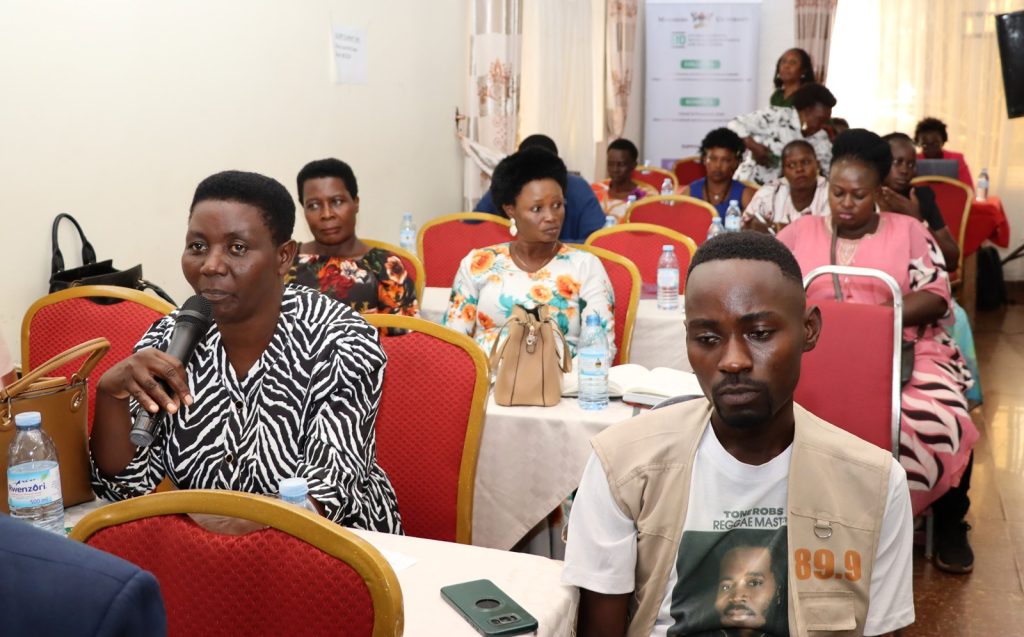
In closing, Dr. Sseruyange called for policy and regulatory reforms, public awareness campaigns, and rigorous assessments to promote energy transitions. “How can we, as a nation, collaboratively promote energy transitions?” he posed to the audience, urging collective action from government, NGOs, and the general public.
Participants React
During the plenary discussions, several interventions were proposed to enhance the transition to green technologies. Highlighting the negative environmental impacts of high school dropout rates.
Participants noted that many youths turn to activities like bricklaying, charcoal burning, and sand mining for survival, which harms the environment. They called for public education and awareness programs to address fears and cultural biases against new energy technologies. “Education on the benefits of using these technologies is crucial,” said Harriet the district natural resources officer.
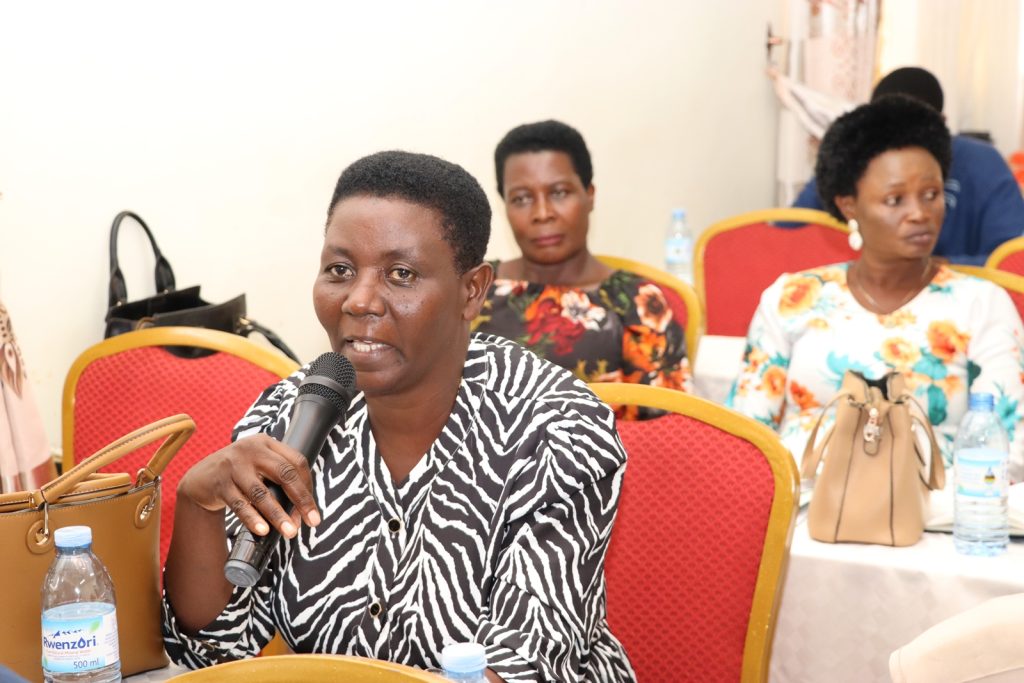
Affordability of new energy sources was another major concern, with high initial costs and refilling expenses for LPGs making them inaccessible for many rural poor.
Participants also highlighted the problem of low-quality counterfeits sabotaging payment schemes for acquiring new technologies, calling for regulation to address quality standards.
Cultural perceptions that clean cooking energies are for the rich and lazy further hinder the transition, underscoring the need for continuous public sensitization, which they stressed should be physical.
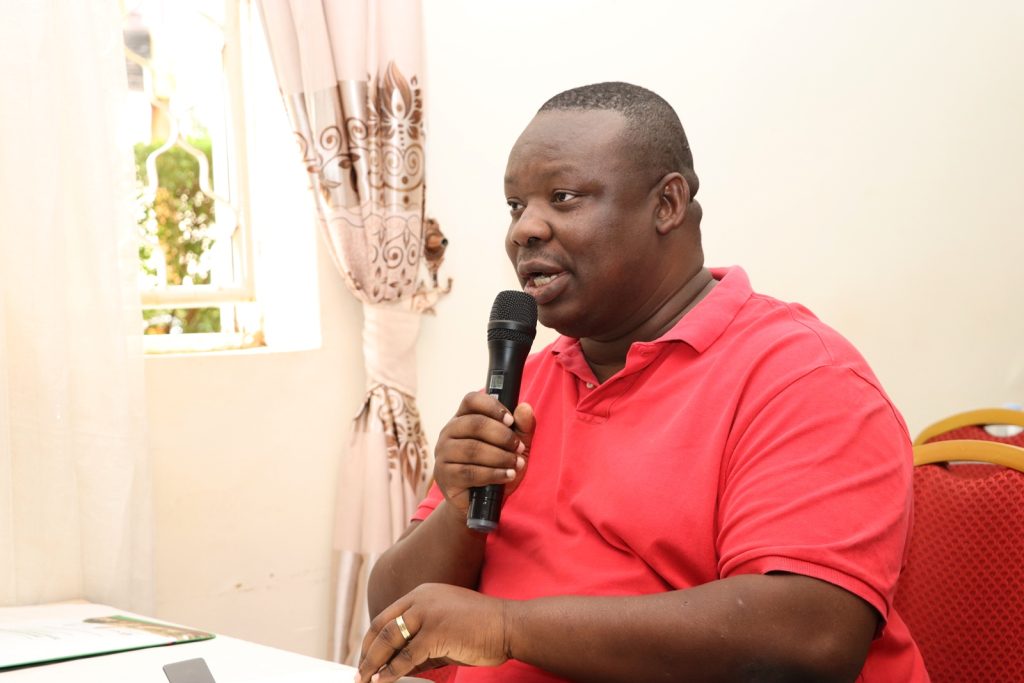
Limited budgets for local governments and weak enforcement mechanisms were also cited as barriers to implementing clean energy programs. Participants proposed subsidies for manufacturers and consumers of clean energy sources, expanding access to electricity and LPGs in rural areas, and ensuring widespread availability and awareness of green technologies.
Hoima District Leadership Decries Effects of Indoor Pollution
The Vice Chairperson of Hoima District, Hellen Namulumba, raised concerns about the severe effects of indoor pollution on the community’s health.
Closing the policy dialogue, Namulumba appreciated the organizers for addressing these critical issues, noting that many lives have been lost due to ignorance about the dangers of indoor pollution.
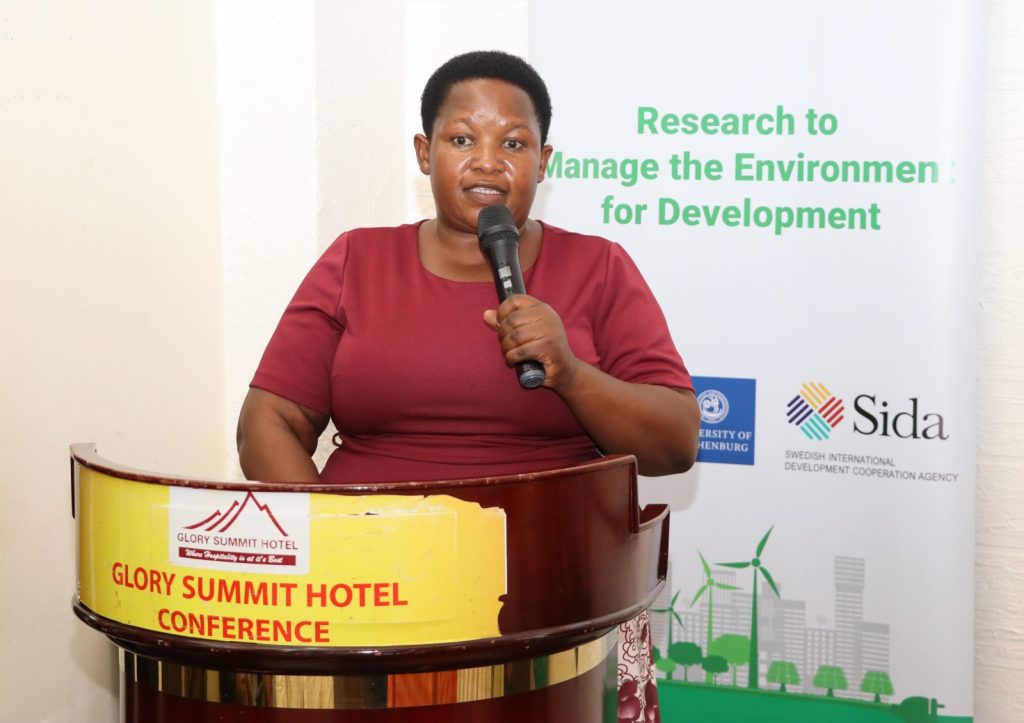
“There is no single woman in the village who would wish to continue cooking on firewood but they are incapacitated. They can adopt to other energy sources like electric and gas cockers”, she stressed
Namulumba highlighted the increasing cases of cancer, associating the disease to the use of biomass. “It is my prayer that we conduct many of these engagements at the grassroots level, bringing on board sub-county political leaders,” she said.
She called for government intervention to reduce indoor pollution by extending power coverage to rural areas beyond 50%, reducing power unit costs for domestic users, and ensuring consistent power supply. “If government can intervene, indoor pollution can reduce. If government can extend power coverage to rural areas beyond 50% and reduce the cost of power units for domestic users and ensure there is consistency in power supply, I think our people can enjoy this country,” Namulumba stated.
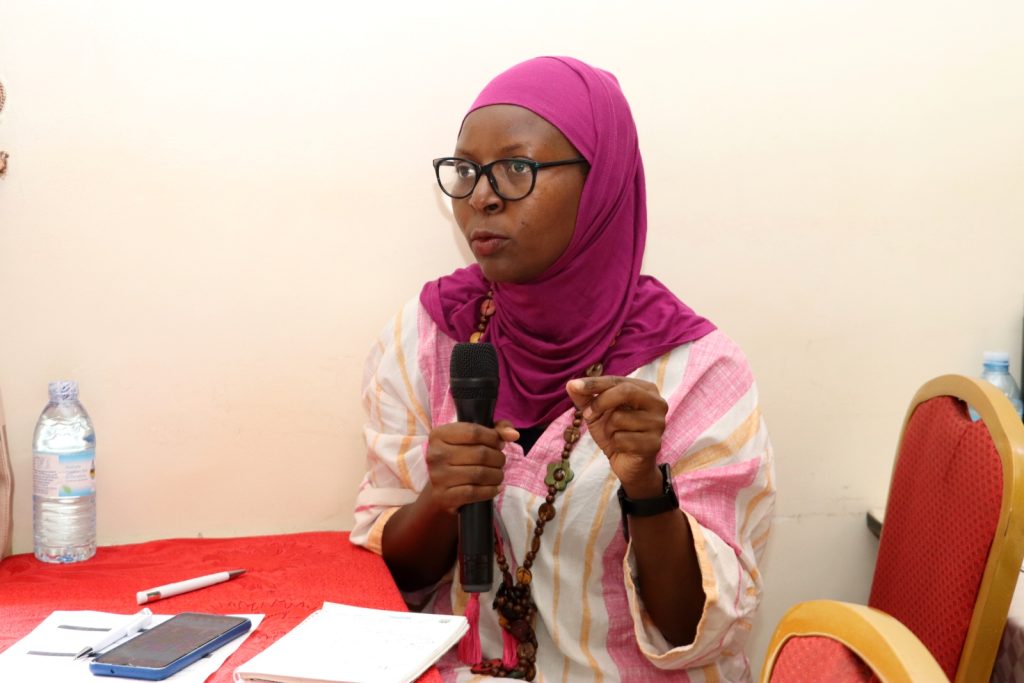
She also emphasized the need to support small-scale innovators, such as those manufacturing briquettes and improved cooking stoves, to reduce indoor pollution. Additionally, she called for strengthened policies for emission control systems in automobiles to reduce cancer and other disease rates.
“If at all government can boost small-scale innovators like assisting briquette manufacturers in marketing their products through sensitization, boost those making improved cooking stoves, we can reduce indoor pollution,” she said. “And if government can strengthen policies for emission control systems in automobiles that can greatly make an impact in reducing the rate of people dying of cancers and other diseases.” she proposed.
Namulumba thanked the participants for their attendance and pledged the district’s commitment to support them in these initiatives, appealing to them to come up with budgets to support those engaged in making alternative energy sources.
Jane Anyango is the Communication Officer EfD Uganda
Trending
-
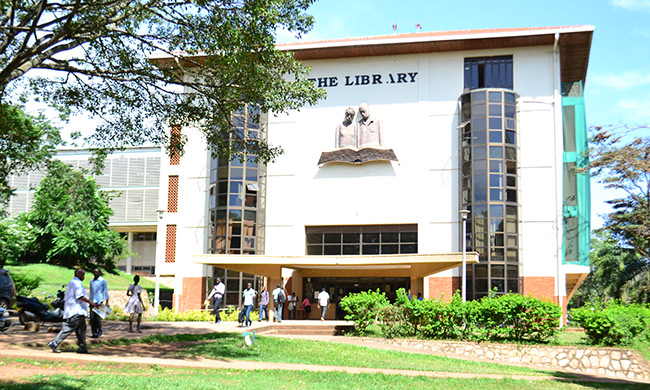
 General1 week ago
General1 week agoDiploma/Degree Holders Admission Lists 2024/25
-
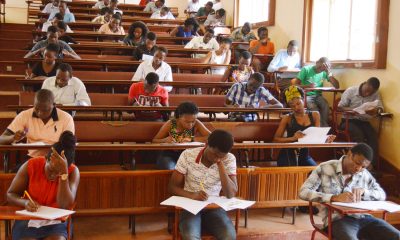
 General1 week ago
General1 week agoAdvert: Mature Age Entry Scheme – Private Sponsorship 2024/2025
-

 General5 days ago
General5 days agoProf. Buyinza Mukadasi Appointed Acting DVC Academic Affairs
-
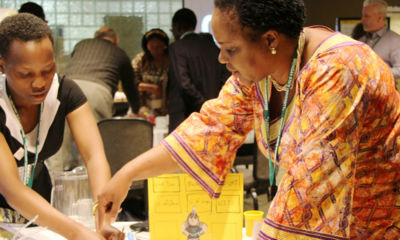
 General1 week ago
General1 week agoAfrican Futures Research Leadership Program: Cohort 5 – Call for Scholars
-
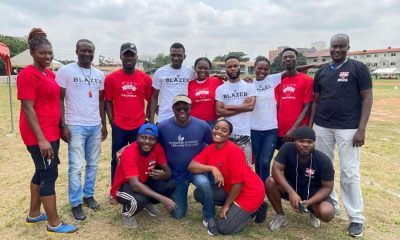
 General1 week ago
General1 week agoNow Open: CADFP Project Requests
